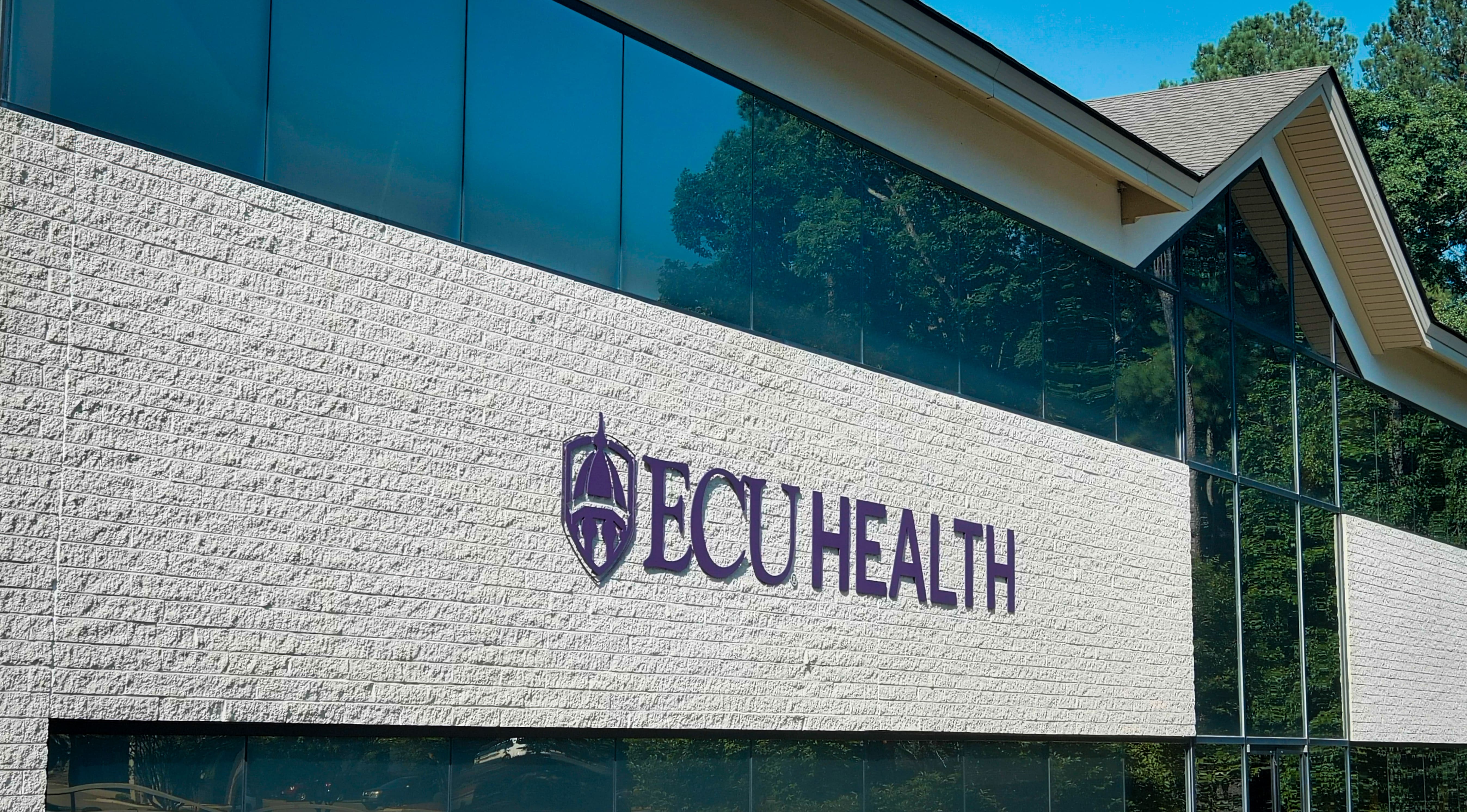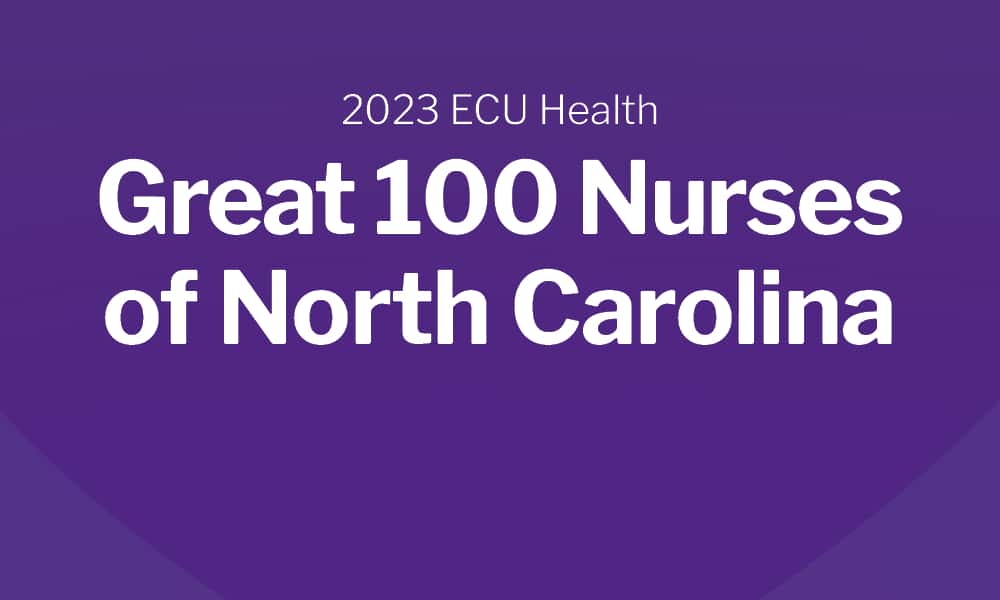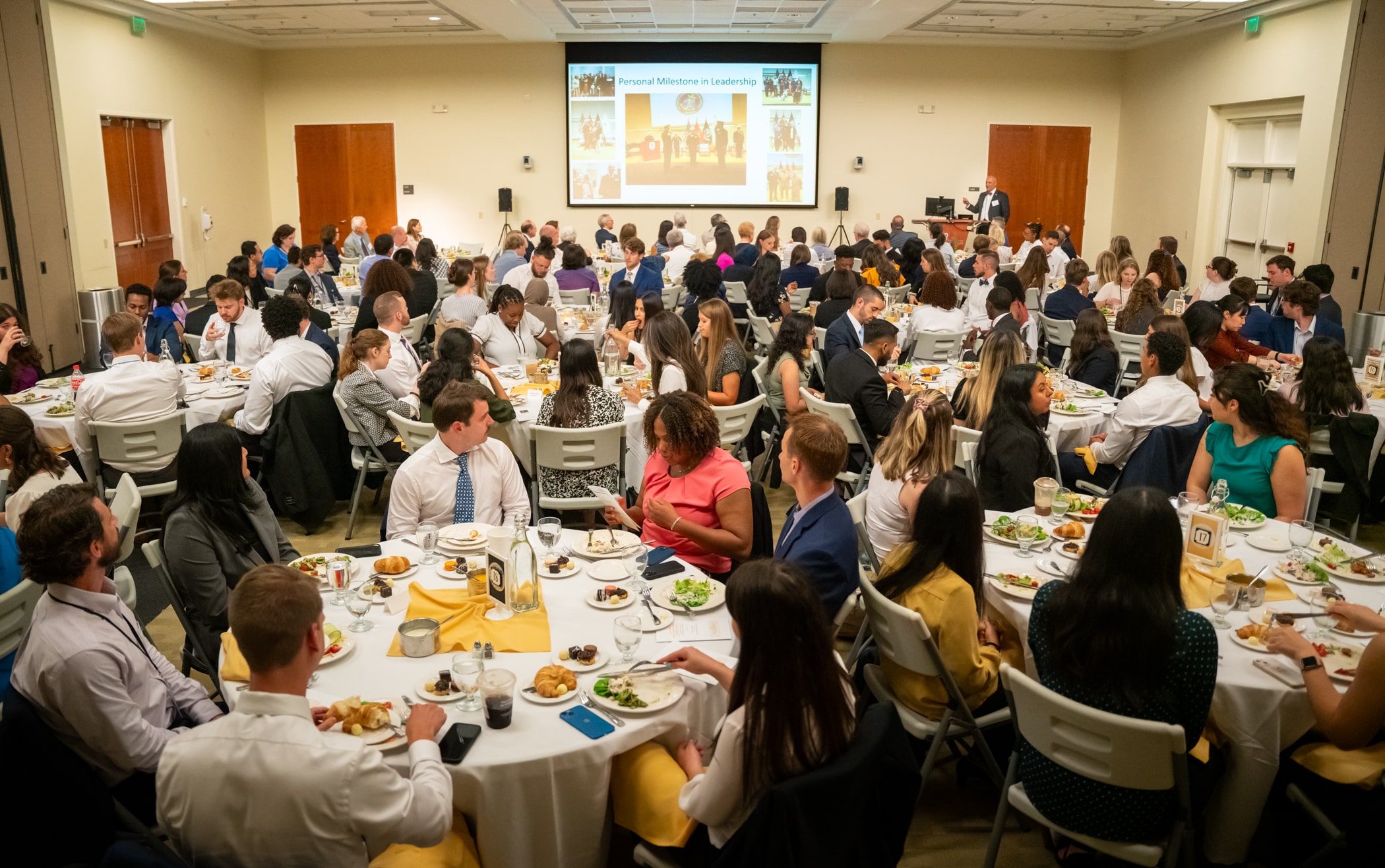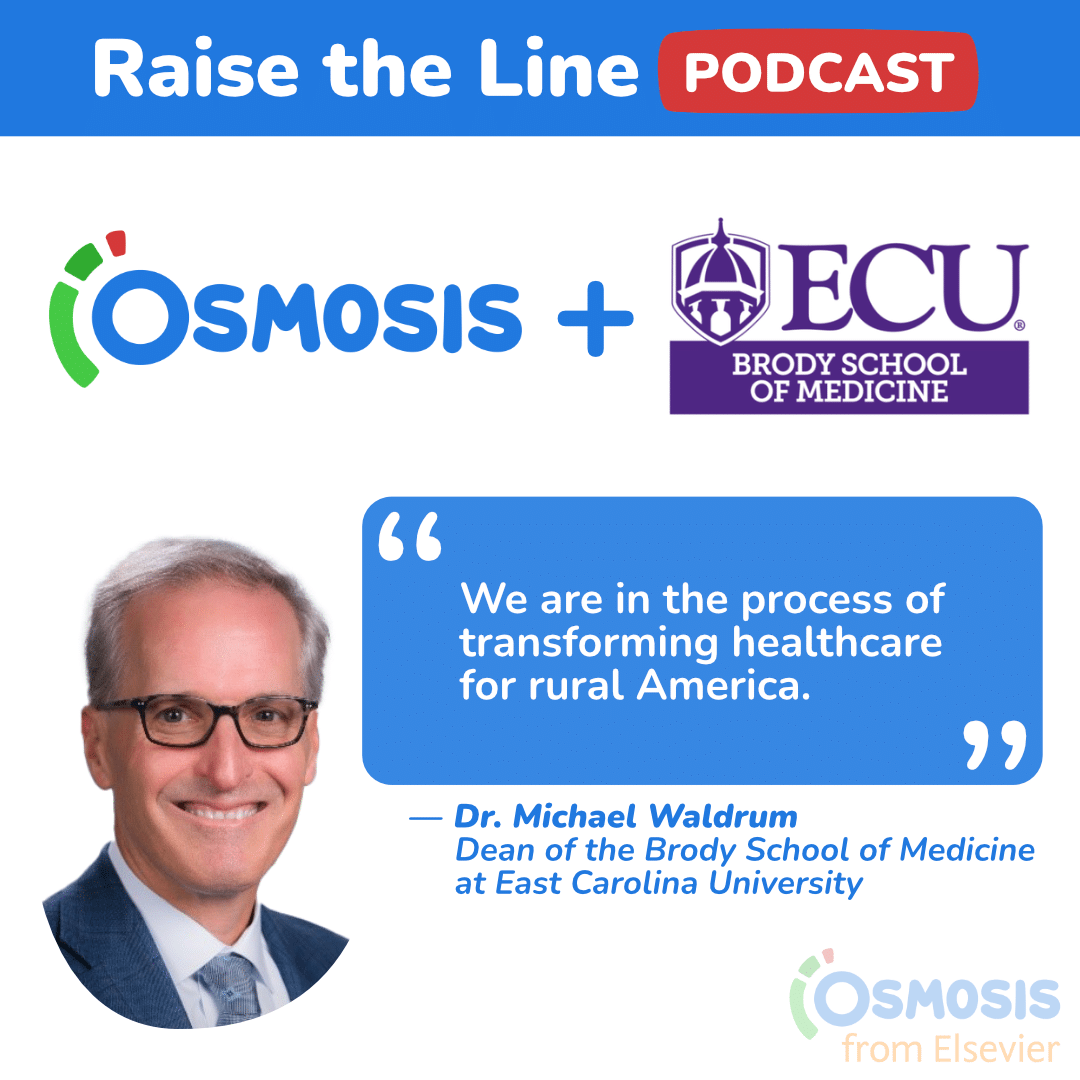Greenville, N.C. – ECU Health is pleased to announce Brian Harvill, CPA, MBA, has officially been named president of ECU Health Roanoke-Chowan Hospital and Dennis Campbell, II, DHA, RN, NEA-BC, has officially been named president of ECU Health Beaufort Hospital, a campus of ECU Health Medical Center, effective immediately.
“As we work toward the realization of ECU Health’s vision of becoming the national model for academic rural health care, the importance of collaboration, teamwork and knowing and understanding the unique needs of the communities we serve cannot be overstated,” said Jay Briley, president of ECU Health Community Hospitals. “I appreciate Dennis’ and Brian’s ongoing commitment and leadership to ECU Health and eastern North Carolina, and I am excited about what formalizing their leadership roles in these areas will mean for the health system and the rural communities we serve.”
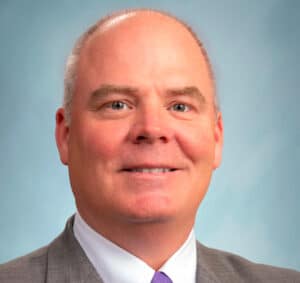
Brian Harvill
After serving as interim president at Roanoke-Chowan Hospital since March 2023, Harvill will officially become president of Roanoke-Chowan Hospital while also continuing in his role as president of ECU Health Bertie and Chowan Hospitals. Through his leadership and collaborative approach, Harvill has successfully balanced and led the three hospitals throughout the past six months. His unique skillset and leadership ability has led to the development of a strong culture of team work and excellence in patient and team member experience and quality of care.
Harvill has been with ECU Health for 11 years, serving in financial and administrative leadership roles. Prior to joining ECU Health, he was director of Corporate Accounting for Atrium Health (formerly Carolinas HealthCare System), where he served for 17 years. He has a dedicated focus on serving the people of eastern North Carolina as evidenced by his membership in and leadership of various local professional and civic organizations.
“I am honored to continue collaborating with the entire team at ECU Health Roanoke-Chowan Hospital, which has a rich legacy of providing high-quality care to Ahoskie and the surrounding communities,” said Harvill. “I look forward to continuing in the role of president and working on behalf of our patients and team members as we continue to strive towards the collective mission of improving the health and well-being of the region.”
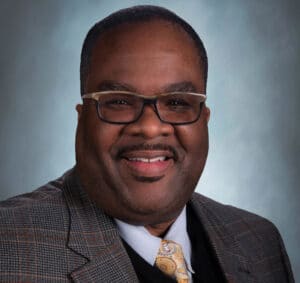
Dennis Campbell, II
Additionally, after serving as interim president at ECU Health Beaufort since February 2023, Campbell, II will officially serve as president of the hospital. During his time at ECU Health Beaufort, Campbell, II has prioritized developing relationships with important stakeholders and partners in the area including Beaufort Community College and ECU, exemplifying his dedication to investing in the future of health care in eastern North Carolina.
Campbell, II has been with the health system for three years, previously serving as ECU Health Beaufort’s vice president of Patient Care Services. In his time with the system, Campbell, II has been an important voice and visionary through a time of change for ECU Health Beaufort. He played a crucial role in two recent major initiatives for the health system: the transition of Beaufort to become a campus of ECU Health Medical Center and the introduction of the Nurse Travel Staffing program.
“This is a time of great transformation for ECU Health Beaufort and I am deeply appreciative for the opportunity to continue to lead this great team through these exciting times,” said Campbell, II. “I am passionate about serving the Beaufort community and being part of a hospital and care team that tirelessly serves patients and their loved ones during times of great need.”
Tony Khoury, CBI, M&AM, has been appointed by the Pitt County Commissioners to the ECU Health Medical Center Board of Trustees effective June 26, 2023.
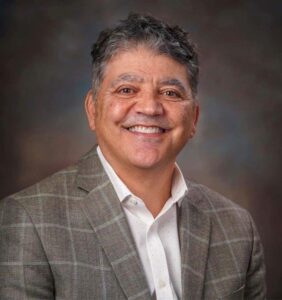 Khoury has over 30 years of business ownership experience, with an emphasis on working with privately held businesses within the manufacturing, wholesale/distribution, construction, health care, and technology sectors. He is a Senior Business Broker and the Founder/Owner of Transworld Business Advisors of eastern North Carolina, headquartered in Greenville.
Khoury has over 30 years of business ownership experience, with an emphasis on working with privately held businesses within the manufacturing, wholesale/distribution, construction, health care, and technology sectors. He is a Senior Business Broker and the Founder/Owner of Transworld Business Advisors of eastern North Carolina, headquartered in Greenville.
Khoury holds an undergraduate degree in Electrical Engineering from Youngstown State University and a Master of Business Administration degree from Duke University’s Fuqua School of Business. Khoury has a strong passion for helping the communities of eastern North Carolina by attracting investment and improving the lives of its residents. He serves on the board of directors of the NC East Alliance, a 29-county economic development nonprofit, as well as on the advisory board of the SBTDC (Small Business Technology Development Center).
The governing board of ECU Health Medical Center sets policies guiding the operation and direction of the hospital and its subsidiaries. The governing board serves on behalf of the community, providing ideas for new programs and supporting existing ones. Members are charged with bringing the community’s voice to the health care system and, in turn, sharing the organization’s story in the community. Board members serve voluntarily and without pay.
KENANSVILLE – You could say Jon Kornegay was born to be a rural doctor. His father was a physician in a small town in Duplin County in eastern North Carolina. His mother was a graduate of East Carolina University’s first nurse practitioner class in 1976.
But it was his experience at ECU’s Brody School of Medicine that sealed the deal.
“Even early on in my medical school I saw the emphasis on service. You see other members (at the school), attending physicians and professors, who live that life and lives of service,” he said recently during a break from his job as a hospitalist at ECU Health Duplin Hospital in Kenansville. “Then you get exposed early on to underserved areas and populations and see how rewarding that can be.”
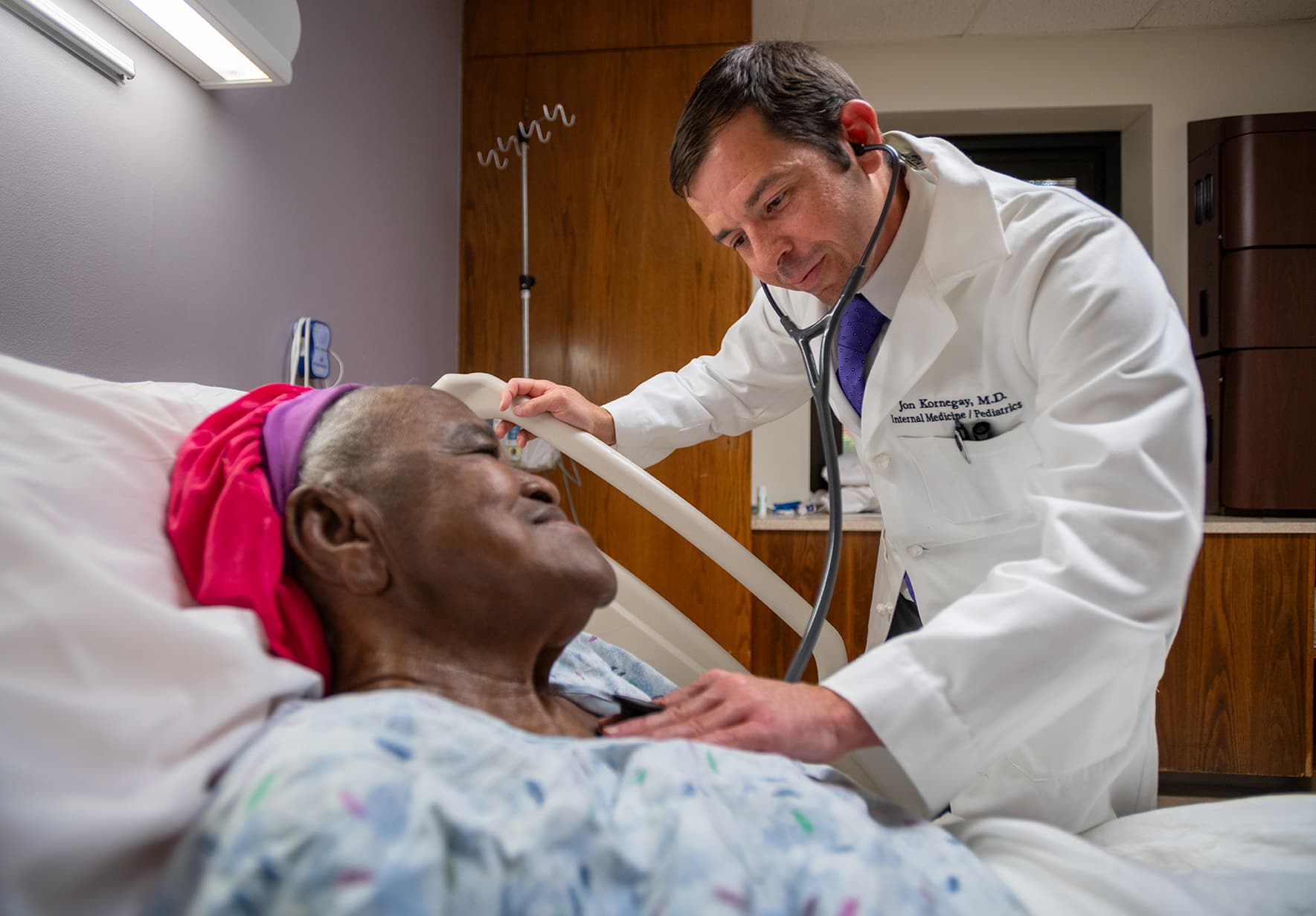
ECU’s medical school was established in 1974 after successfully making the argument – contentious at the time – that it could fill a need in North Carolina to train more primary-care physicians, rather than medical specialists, and find more doctors willing to serve in places like Kenansville.
Since then it has made good on that promise: according to the American Academy of Family Physicians, Brody ranks second in the nation among medical schools in the percentage of family physicians it graduates. The school admits 86 students to each class, all from North Carolina; this year, 52% of Brody’s graduates entered primary-care residencies.
“Developing great primary-care providers for rural areas is at the core of what we do at Brody and within ECU Health,” says Dr. Michael Waldrum, dean of Brody and CEO of ECU Health. “We have students, professors, residents and doctors who really understand that side of health care, and their work in that space leaves a legacy that we can all be proud of.”
A reliable supply of physicians and medical professionals is a critical part of the economy of any rural community:
- Having primary care close to home means residents are more likely to seek treatment for medical problems before they become crises and less likely to have to leave home to get treatment, resulting in fewer missed days of work and better quality of life;
- A healthy medical community is an important selling point for developers recruiting new businesses and for families trying to decide where to move;
- Rural hospitals are among the biggest employers in a county; since 2005, 12 rural hospitals have closed across the state, part of a troubling national trend;
- And medical professionals contribute in other ways. Kornegay also serves as the county’s EMS medical director; one of his colleagues also serves as county health director; other medical professionals serve on chambers, chair charitable boards, and coach sports teams.
Kornegay knows work in rural health care is not for everyone: Physicians can generally make more in cities in highly specialized fields; rural areas don’t offer the same amenities. Overcoming those barriers, he says, will require a variety of approaches, including improved salaries, help with loan repayment, retention bonuses and Medicaid expansion.
But in the meantime, Kornegay finds some people fall in love with work in rural areas, for the quality of life, the chance to get to know patients and neighbors in a deeper way, and for the opportunity to solve a wide range of health concerns.
Kornegay, certified as both an internist and a pediatrician, will often move from a geriatric patient in an ICU to a newborn down the hall.
“If you can get doctors into rural settings for a little while – get to know the environment, get to build their social network, get that experience … you have a chance to keep ‘em,” he says.
Something’s working in Duplin County. All five full-time physicians in Kornegay’s group at Duplin Hospital either went to med school or did their residency at Brody. They join a cadre of other ECU grads in health care and other fields who put down roots in the county.
“There’s a lot of purple and gold here,” says Kornegay. “That’s for sure.”
Further reading on Higher Ed Works
“Eastern North Carolina needs us”: The economic impact of ECU
Greenville, N.C. – ECU Health Medical Center recently earned accreditation from the Commission on Cancer (CoC), a quality program of the American College of Surgeons (ACS). This accreditation means patients will receive comprehensive, personalized care provided by a team of specialists working closely together, access to information on clinical trials and new treatment options, ongoing monitoring of care and lifelong follow-up, mental health support, financial guidance, survivorship care and other long-term services.
“I am proud of our ECU Health team members and physicians who work hard to provide the most advanced cancer care to eastern North Carolina,” said Brian Floyd, president of ECU Health Medical Center and chief operating officer of ECU Health. “Cancer is a terrible disease that has touched most, if not all, of us in some way. As a regional academic medical center, ECU Health Medical Center strives towards excellence in all it does. This accreditation is a testament to the tireless efforts of our cancer care teams, who make a difference in the lives of so many in our region.”
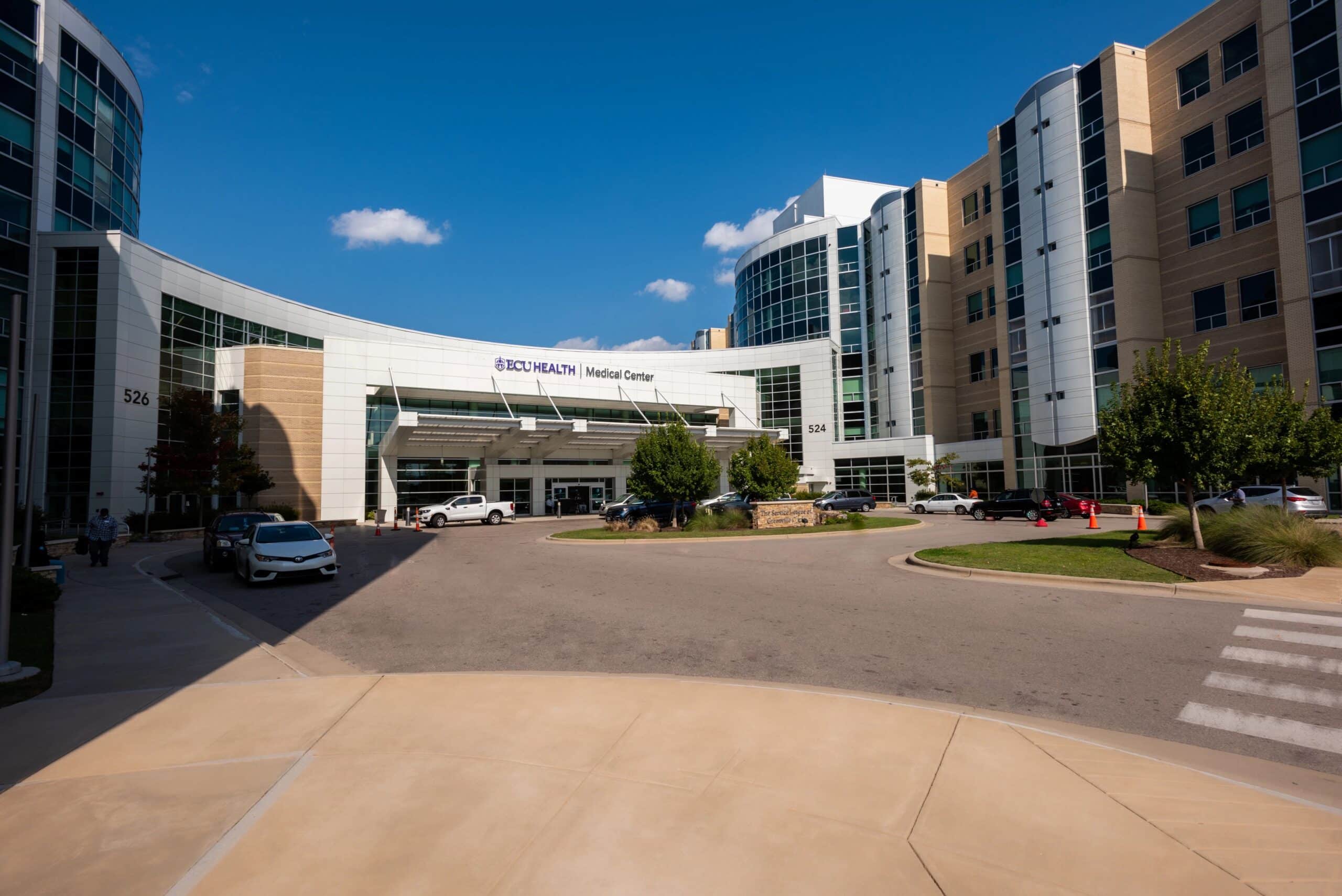
As a CoC-accredited cancer center, ECU Health Medical Center applies a multidisciplinary approach and treats cancer as a complex group of diseases that requires consultation among surgeons, medical and radiation oncologists, diagnostic radiologists, pathologists, and other health care professionals that specialize in caring for cancer patients. Cancer patients benefit from having access to clinical trials, screening and prevention events, palliative care, genetic counseling, rehabilitation, oncology nutrition, and survivorship services.
“Eastern North Carolina faces a disproportionately high rate of cancer, and as the largest health care provider in the East, ECU Health is committed to maintaining excellence in the delivery of comprehensive, compassionate, patient-centered, high-quality care for patients with all types of cancer,” said Dr. Darla Liles, Cancer Committee chair at ECU Health, professor and chief of the Division of Hematology and Oncology at the Brody School of Medicine at East Carolina University. “This accreditation demonstrates our holistic approach to cancer care that includes preventive measures, educational resources, clinical trials, support and survivorship services and treatment with the latest technologies and highest clinical standards.”
According to the American Cancer Society, more than 1.9 million new cancer cases and approximately 609,820 deaths from cancer are expected in 2023 in the United States. Of those, 67,690 new cases are expected in North Carolina. Residents in eastern North Carolina have access to ECU Health’s cancer care network that spans across nine hospitals – including the Eddie and Jo Allison Smith Tower at ECU Health Medical Center in Greenville that is home to both inpatient and outpatient cancer services – five radiation oncology sites, three joint ventures and numerous outpatient clinics.
“The Commission on Cancer brings together experts and advocates from across the country to develop standards for cancer care so that patients with cancer receive the highest quality care coordinated by a team of dedicated physicians and specialists,” said Timothy Wm. Mullett, MD, MBA, FACS, professor, general thoracic surgery medical director, Markey Cancer Center Affiliate and Research Networks University of Kentucky, and chair of the Commission on Cancer.
This article celebrates the 2023 Great 100 Nurses of North Carolina ECU Health honorees. The Great 100 Nurses in North Carolina honors the nursing profession by recognizing nurses around the state for their commitment to excellence. The recipients are distinguished for their outstanding professional ability as well as their contributions to improving health care services in their communities. This year’s 13 ECU Health honorees are below.
Ann Brabble
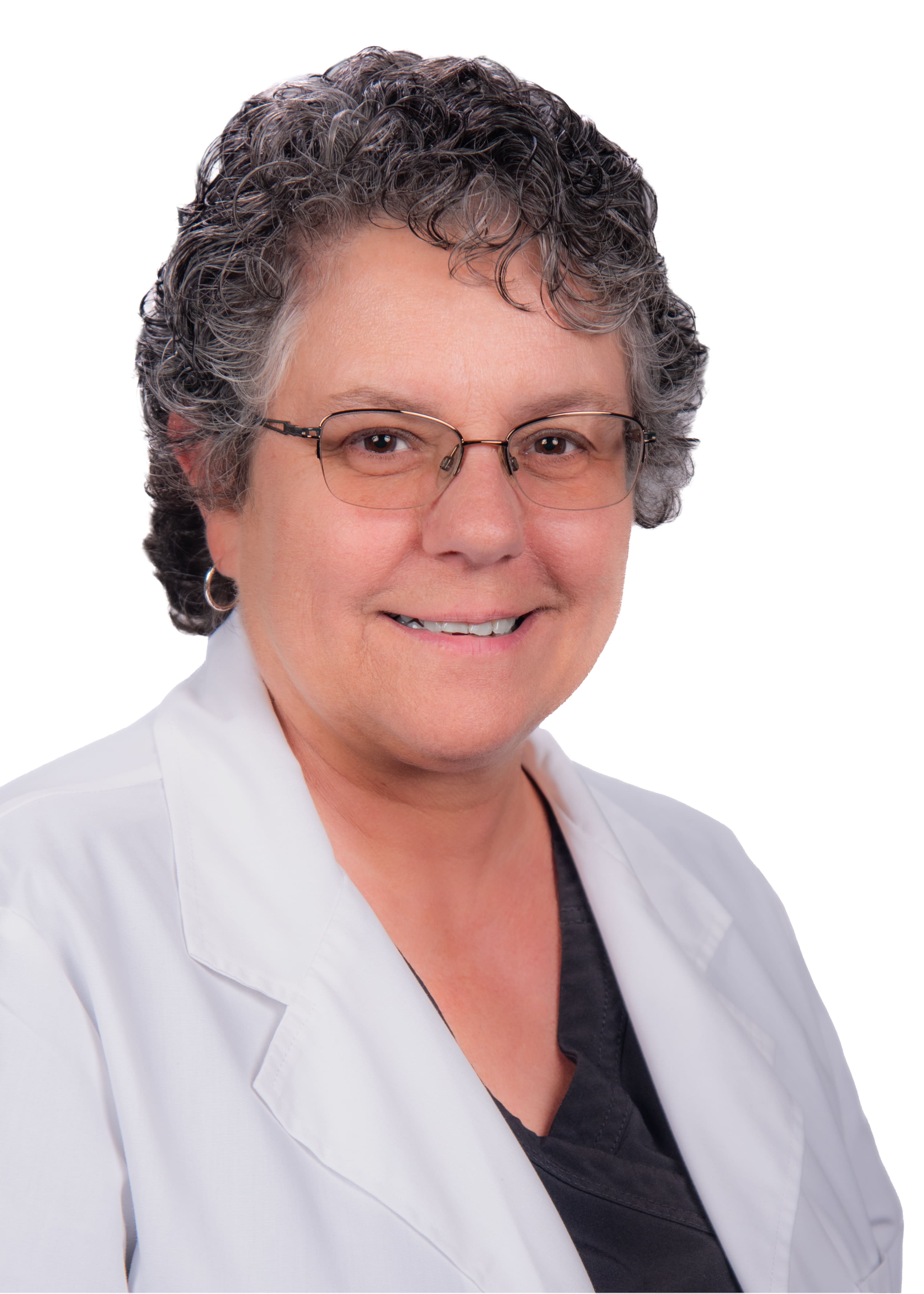
Elizabeth “Ann” Brabble described herself as a “small town girl” who enjoys her work as a nurse in the ambulatory surgery unit at ECU Health Roanoke-Chowan Hospital. “Some of our patients have never had surgeries before,” Brabble explained. “They’re scared. But you calm their fears and then see them in Wal-Mart, or they come in for another surgery and ask you to be their nurse.”
Brabble said growing up with her grandparents living with her influenced her decision to become a nurse: “When they got sick, my grandparents moved in and lived with us from when I was 12 or 13 and up. It was at that time I said I wanted to be a nurse, and I never changed my mind.”
Although Brabble loves her current position in outpatient surgery, she has worked in a variety of nursing areas for 37 years, 27 of which have been with ECU Health. “I worked in pediatrics for about 11 years,” Brabble said, “But I enjoy working with patients having surgery: providing the preparation and education to them and their families.”
What helps her in this work, Brabble said, is her faith and the support of her family. In addition to her work on outpatient surgery, Brabble also cross trains in chemotherapy, the outpatient clinic and outpatient lab testing.
“Nursing is about teamwork,” Brabble said when asked about being honored as a Great 100 Nurse of North Carolina. “If we didn’t have a good team, none of what we do would be successful. I try to do every day what is right for my patients, providers, family and co-workers. I wish I could take my whole team with me; I have co-workers who deserve it more than me.”
Brabble also acknowledged that having 13 honorees from the ECU Health system is significant. “It speaks highly of the team members who are striving every day to do the best they can, even in bad situations,” Brabble noted. “You don’t do it for recognition, but it shows that the organization supports team members.”
Brabble does her own work to support student and new nurses. “You have to come in to this not just for the money, but with compassion and care,” Brabble explained. “I tell that to all of my students. Don’t forget about the patient in the bed by focusing on the computer. I teach them to make eye contact and talk to the patient.” Brabble said she credits her own mentors for learning these important skills. “I had excellent preceptors who took me on this journey. Every transition I’ve made, I’ve had people I can refer back to.” Even now, Brabble said she learns something new every day. “New things come out all the time. And I learn things from the new graduates. We might all do the same skill but with a different technique, and you learn from each other what works best for you. Having an excellent team every day makes me successful.”
Emily Nock
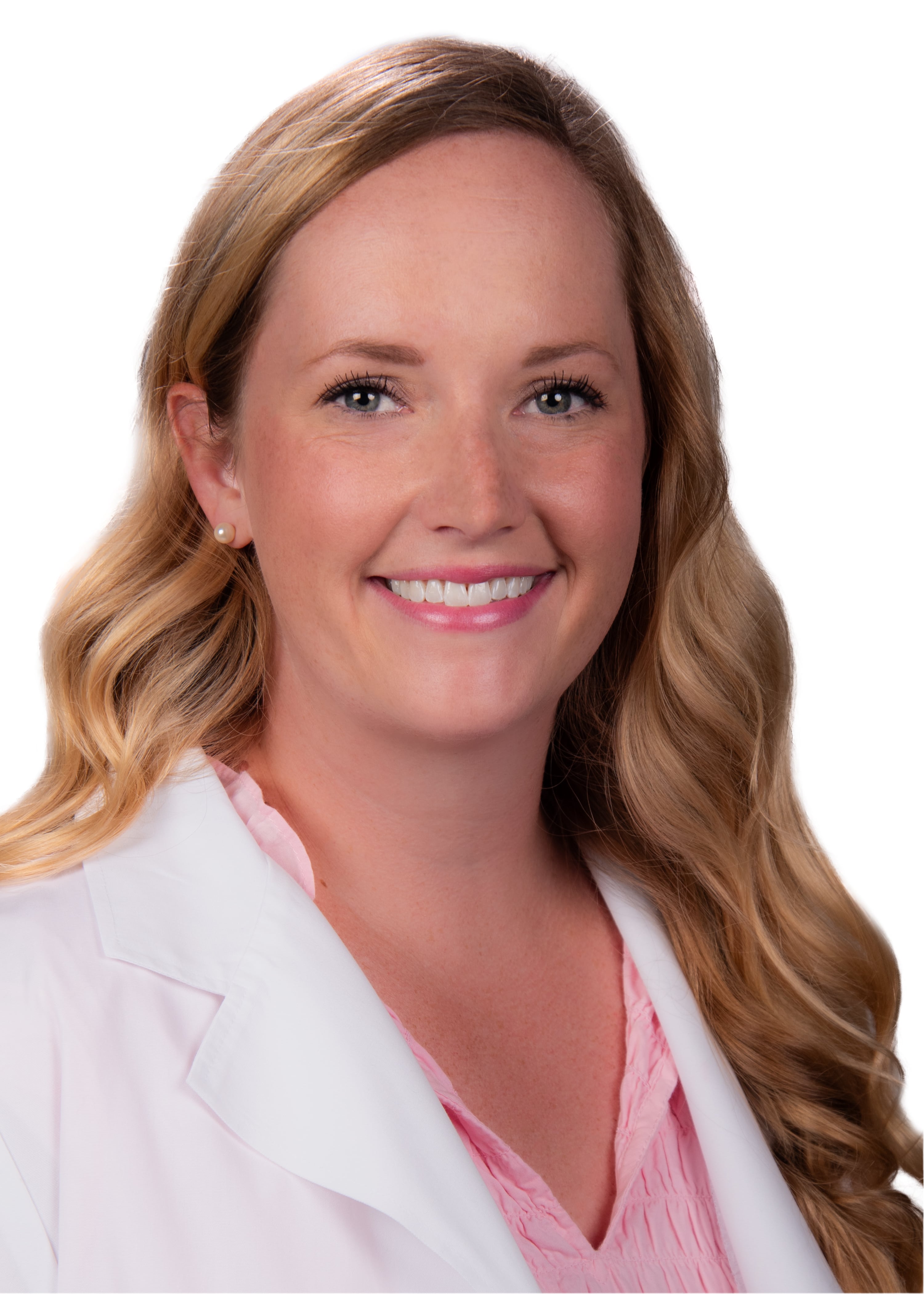
Emily Nock wasn’t sure at first what her path in life was supposed to be. “I thought I wanted to be an accountant, and then I thought I wanted to work in public health,” Nock said. “I ended up going to UNC at Chapel Hill to study psychology. It wasn’t until my junior year in college that I realized what I wanted to be.”
Nock’s mother is a nurse, but while growing up, Nock said she thought she wanted to do something else. “In the back of my mind, my mom was a fantastic nurse and a role model, and I thought I could never live up to her greatness,” Nock shared.
After graduating from UNC, however, Nock worked in the Behavioral Health Unit at ECU Health Medical Center, which is where she said her love for helping others truly blossomed. Nock added that having that experience secured her desire to pursue nursing. “I come from a sheltered and privileged upbringing, so to see what many people struggle with – homelessness, mental illness, no family support – it was completely life changing.”
From there, Nock applied for and was accepted into the ECU Accelerated BSN program, from which she graduated in 2016. Nock didn’t want to completely step away from her background in psychology, which is why she chose to work in the neurosciences at ECU Health Medical Center.
“I love the brain and didn’t want to get away from my roots entirely. Seven years later, I still love my patient population so much,” Nock said.
That ECU Health has 13 Great 100 Nurses of North Carolina recipients says a lot about the health system, Nock said. “It’s so wonderful that our leaders and teams are excited to celebrate our nurses and give recognition that’s deserved.” What makes winning the award particularly special for Nock is that she’s not the only one in the family to achieve such an honor. “My mom is a Great 100 recipient from 2001,” Nock explained. “I remember when she got dressed up for the gala – she was so proud and it was so special for her to receive this award.”
When Nock found out she was being nominated, she said she initially felt unworthy. “It was humbling and fulfilling to read the nomination – to see all of your hard work written out helps you realize your worth,” Nock said. “I am especially honored to share the gala experience with my mom.”
Alex Owens
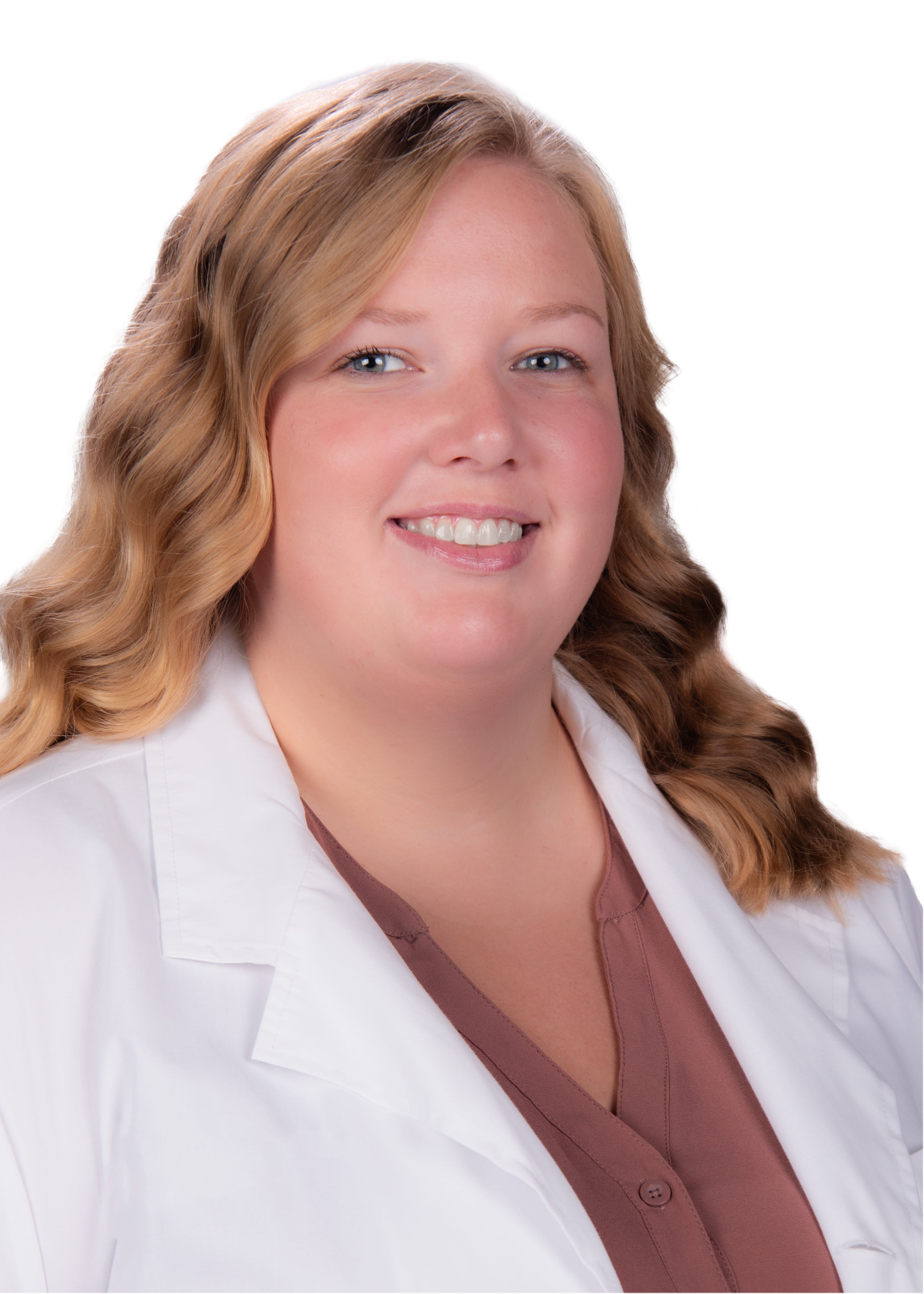
Chelsey “Alex” Owens said that while she picked neurosciences as a practice specialty on a whim, she doesn’t regret the decision. “What I like most about my unit are my co-workers and the patients,” Owens said. “The patient population isn’t the easiest, but we have great teamwork and that makes the shifts smooth.”
Owens graduated with her associate’s degree in nursing from Beaufort Community College in 2016, and she’s worked in ECU Health Medical Center’s neurosciences unit for the last seven years. Being a nurse is something that Owens said she “always wanted to be.” She followed a nursing career pathway in high school and became a Nurse Aide 1 (NA1) as a senior.
To be nominated for and then to win a Great 100 Nurses of North Carolina award was a shock, Owens said.
“My initial reaction was disbelief. I couldn’t believe I’d been a nurse long enough or accomplished enough to be honored with this once-in-a-lifetime award,” she said.
Still, Owens works hard to support her team and promote her profession. “I am head of our CAUTI quality team, I have participated in the Children’s trick-or-treat event for the past four years, I’ve been a clinical coach for five years and an elite charge nurse for four years and I’m a member of our stroke response team,” Owens said. “If my manager needs anything, she can depend on me.”
The honorees will be honored at a statewide gala in October, to be held in Raleigh.
Dana Byrum
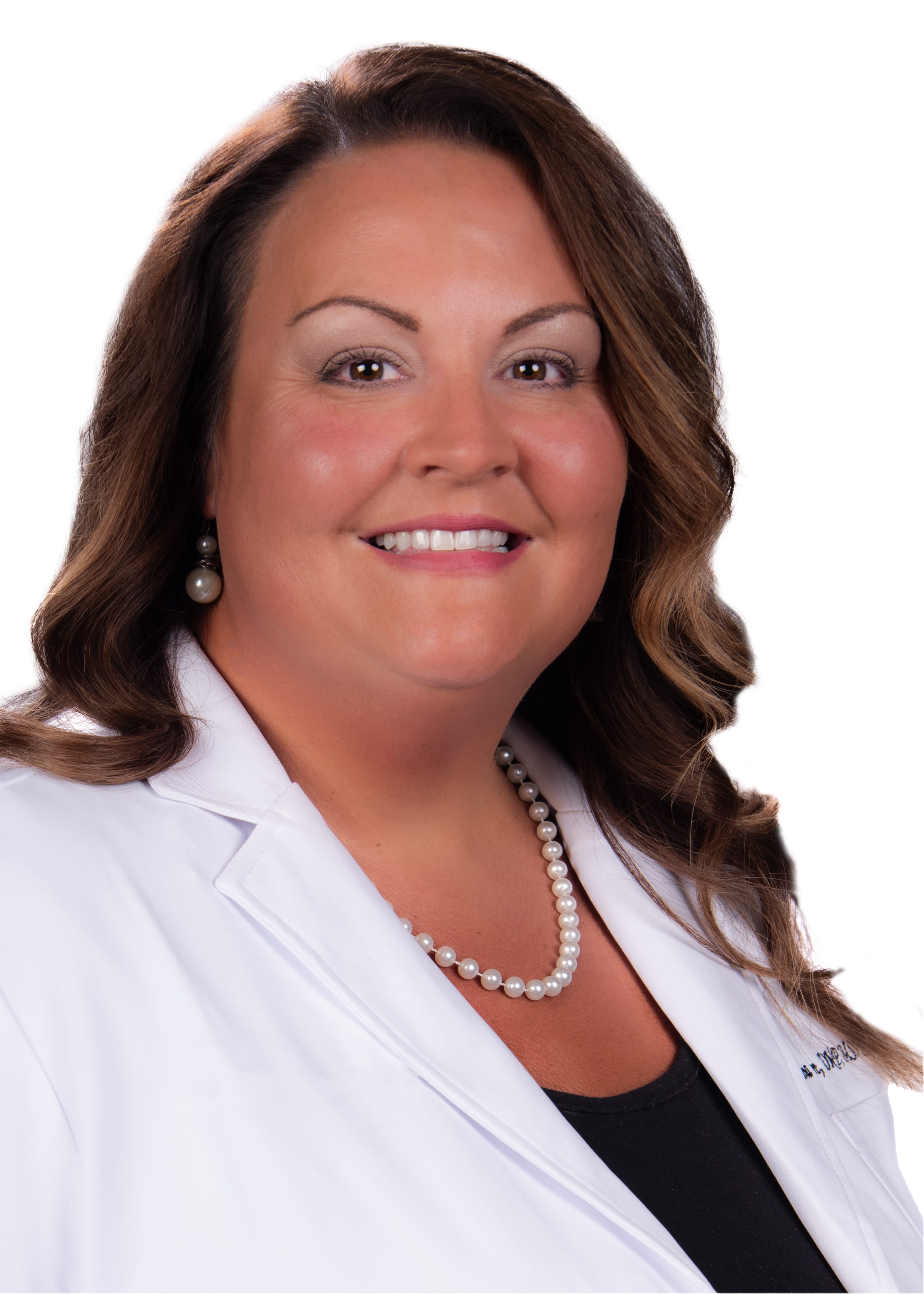
Dana Byrum has been a nurse for 23 years, but her career with ECU Health began in 1996, when she worked in medical records. “Initially, I wanted to be a teacher,” Byrum admitted. “But as I continued working in medical records, I was drawn to patient care.”
Her work in medical records gained the attention of the nurse manager on the medical surgical unit. “Whenever I saw her in medical records, I asked a lot of questions about health care topics I read or heard about. She encouraged me to be a nursing assistant, and she and the other nurses took me under their wings and educated me on patient care – not only as a nursing assistant, but also about the impact a nurse can make,” Byrum shared. That support led Byrum to ultimately pursue her nursing degree. “I am fully HomeGrown,” Byrum said. “I got my AND, BSN, MSN and DNP all with the support of ECU Health.”
After working as a bedside nurse on the medical surgical unit, the ambulatory surgical unit and the outpatient specialty clinics, and after serving as the assistant manager, and later manager, of the ambulatory surgical and outpatient specialty clinics, Byrum assumed the role of director of nursing and is now the vice president of patient care services at Bertie and Chowan hospitals. “Being in a leadership role is being a voice for our front-line nurses and our patients,” Byrum said. “I’m advocating for and empowering nurses to provide the highest quality of care so that our patients have optimal outcomes.”
Byrum said the way she does that is by spending time on the floors with her nurses. “I round frequently in our departments and get that face-to-face time with the nurses,” Byrum explained. “I learn about the challenges they face and how I can help address those.” And, Byrum noted, just because she became a nurse doesn’t mean she doesn’t get to be a teacher. “I have served as adjunct faculty for our local community college and have done a lot of education in my roles. As a front-line nurse, I was the eyes and ears of my patients and served as an advocate for them. I was able to spend time with them and their families, educating them about their care. There was no greater feeling than to know I helped a patient improve their health care or quality of life,” Byrum said. In her current role, Byrum now looks for ways to develop her colleagues into leaders. “I had great mentors along the way and I want to give back,” she said.
When she learned she’d been named a Great 100 Nurse of North Carolina, Byrum said she was excited. “I feel like I’ve worked hard to be a great person and a great nurse; it was exciting to see the contributions I’ve made being recognized.” Byrum was quick to say that receiving such an honor is humbling, and it’s a reflection of the passion she feels for her work. “I genuinely love what I do,” Byrum shared. “I love that I’m responsible for the patient care in two facilities, and I’m able to nurture front-line nurses as well as grow and mentor nurse managers to be great leaders. The fact that I can walk the floor and talk to team members, and then take that information to the board room to make creative solutions that improve those nurses’ day-to-day activities, which leads to high quality patient care – there’s nothing more important.”
Elaine Henry
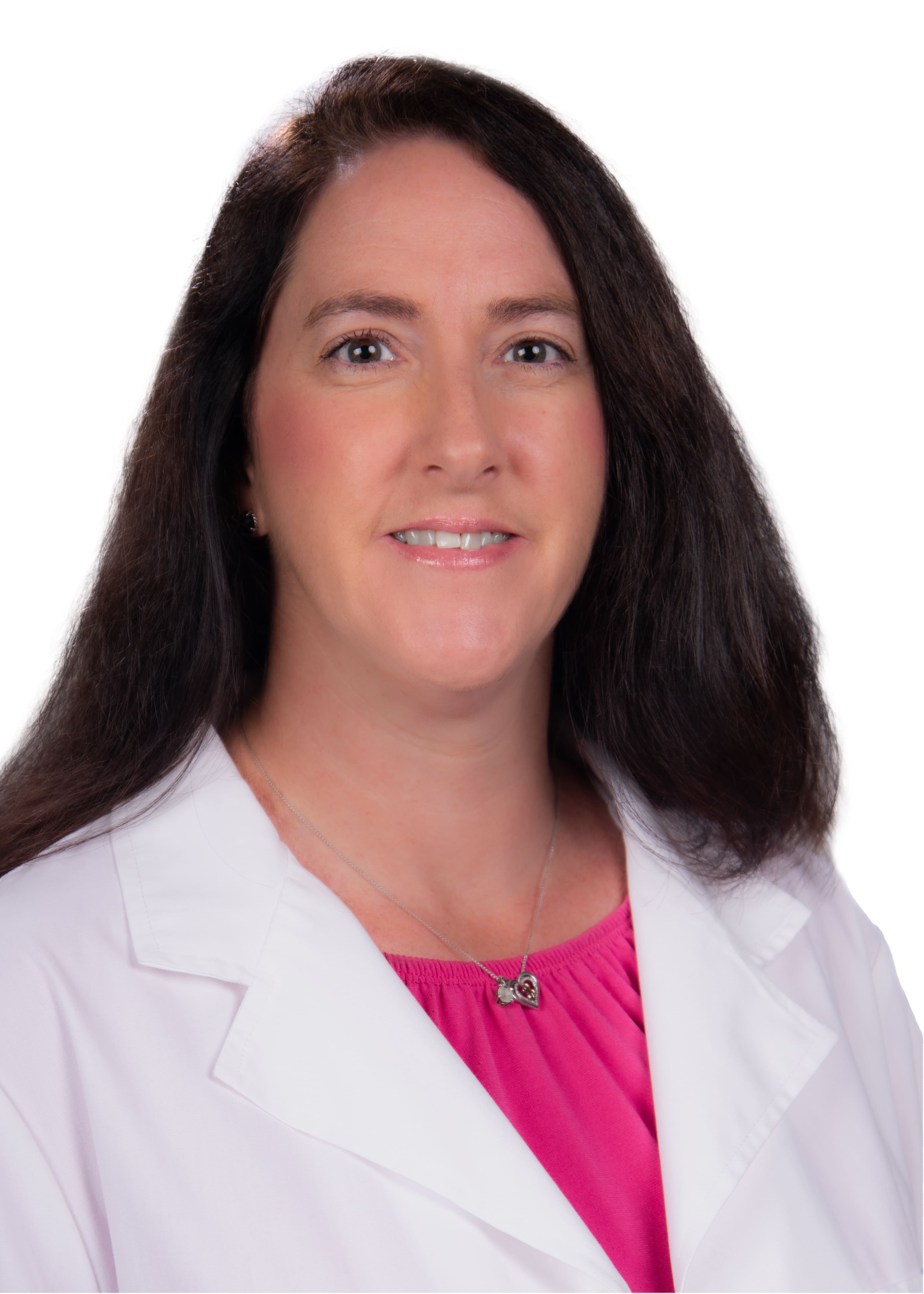
Elaine Henry, the manager of Children’s surgical subspecialists at ECU Health Medical Center, has worked at ECU Health since graduating from ECU in 1996. Prior to her current role, Henry worked in the Neonatal Intensive Care unit for 18 years, followed by three years in pediatric surgery quality improvement and four years in quality for women and children’s. She received her MSN from ECU in 2019 in nursing leadership.
Henry said her clinical rotations led her to the neonatal world and she loved it immediately. “It’s the most rewarding career,” she said. “Even in the worst situations, we can comfort and take care of our patients and their families.” Henry observed that children she saw as patients early in her career are now grown up and having kids of their own. “I recently went to a baby shower for one of my former NICU patients,” Henry said. “It’s such a privilege to care for these babies and watch them get well.”
Henry’s role in quality now gives her a more global perspective about the impact of nursing. “I get to see the improvements we’ve made in health care and in the NICU. I feel like my role is so important; I’m a leader impacting the clinical care in the NICU and across Children’s.”
When she found out she was a Great 100 Nurses honoree, Henry said she was humbled and surprised. “I was so excited I started jumping up and down,” Henry shared. “I have a twin sister who is also a nurse at ECU Health, and I had to text her.” Receiving such recognition is an honor, she said, especially considering the quality of nurses at ECU Health. “There are so many great nurses here,” she explained. “I am proud of my profession and to be a nurse at ECU Health. To be recognized across the state means a lot, and it represents who we are as an organization.”
Katie Knowles
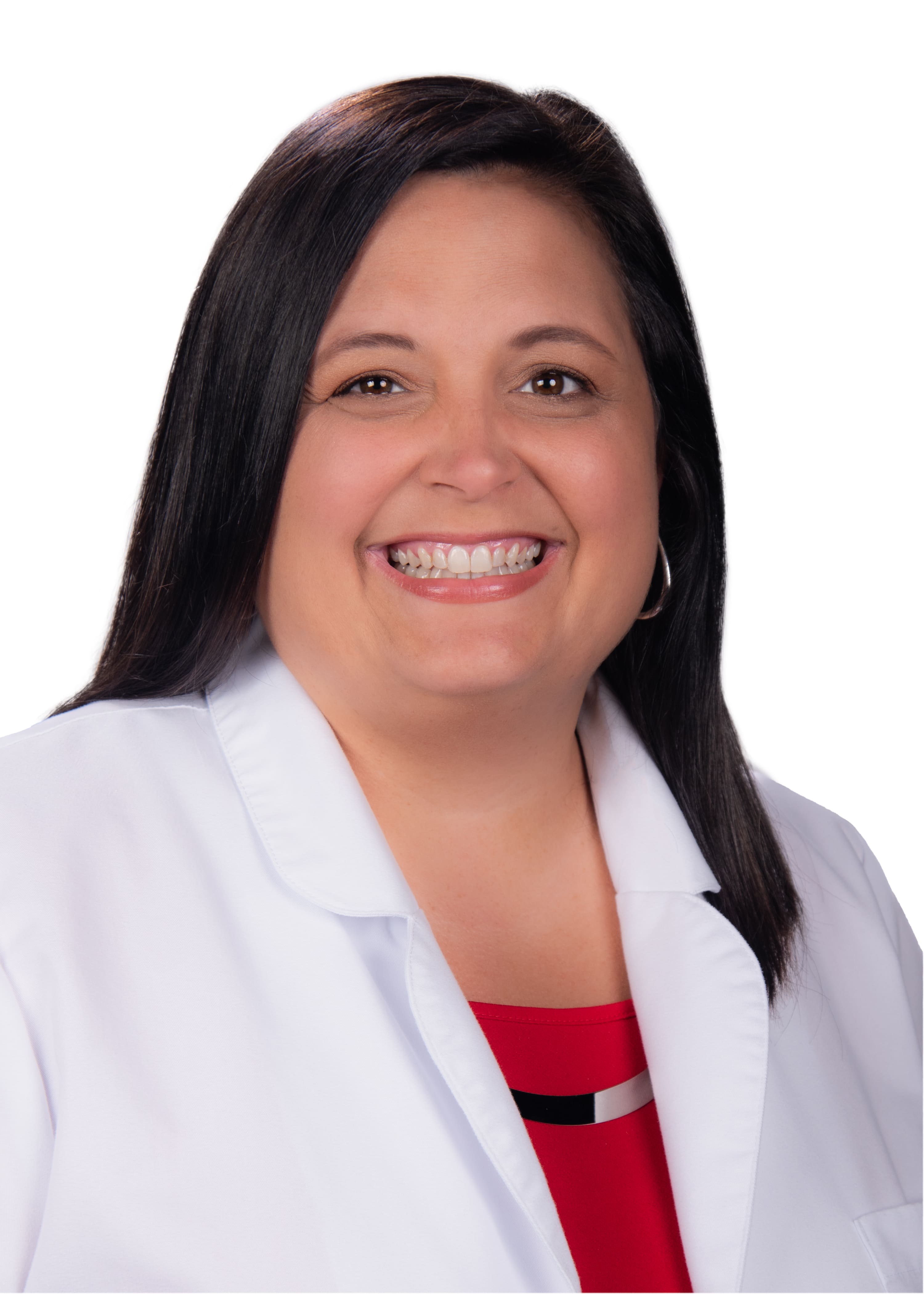
“Service is my love language,” said Katie Knowles, a quality nurse specialist at ECU Health Duplin Hospital, when asked why she chose to go into nursing. When her grandfather had to deal with a misdiagnosed stroke, it solidified her decision to work in health care. “His quality of life would have been so much better if he had received treatment in a timely manner,” Knowles said. After that experience, Knowles attended NC State considering a pre-med route, but a rotation in pediatrics showed her that nurses did the work she was really interested in. She returned home and first attended James Sprunt Community College for her ADN before transferring to the University of Mount Olive for her BSN. She later graduated with her MSN and the realization that her calling was to stay and work in her hometown. “ECU Health gave me the avenue to best serve my community, and it allowed me to become the person and nurse I wanted to be,” Knowles said.
Now an ECU Health team member for 10 years, Knowles said she loves her work in quality.
“I look at the unit, processes, people and problems. And I work to put things in place to make them better for patients and the team,” Knowles shared. She is quick to note that it’s not just her work that gets things done. “No one person changes things alone; it takes a bunch of people working towards the same goal. That’s how you get big change and impact our patients and families.”
Knowles said she was in shock when she found out she was a Great 100 Nurse of North Carolina. “Just to know someone nominated me was huge,” Knowles said. “I’m a person who doesn’t like being in the spotlight. I’m receiving this award on the back of other nurses who’ve worked just as hard, if not harder – not for an award, but because they want to change the lives of the people they help.” Knowles said the honor also means a great deal to her family. “It is emotional because it’s not just for me – it’s for my family and my community. And it shows my kids that the work you do is important, that it matters. That makes this award extra special to me.”
Doing that work in a rural community is especially important, Knowles said. “ECU Health serves 29 rural counties. In Raleigh there’s a doctor on every corner; here there is one provider for every 4,000 people. These patients are underserved, but ECU Health is pouring its resources into those areas and covering more territory than any system in the state.” That service drives Knowles to be the best she can be. “To be a small part of such a big team that’s putting employees and communities first – it’s exciting.”
Jennifer Kendrick
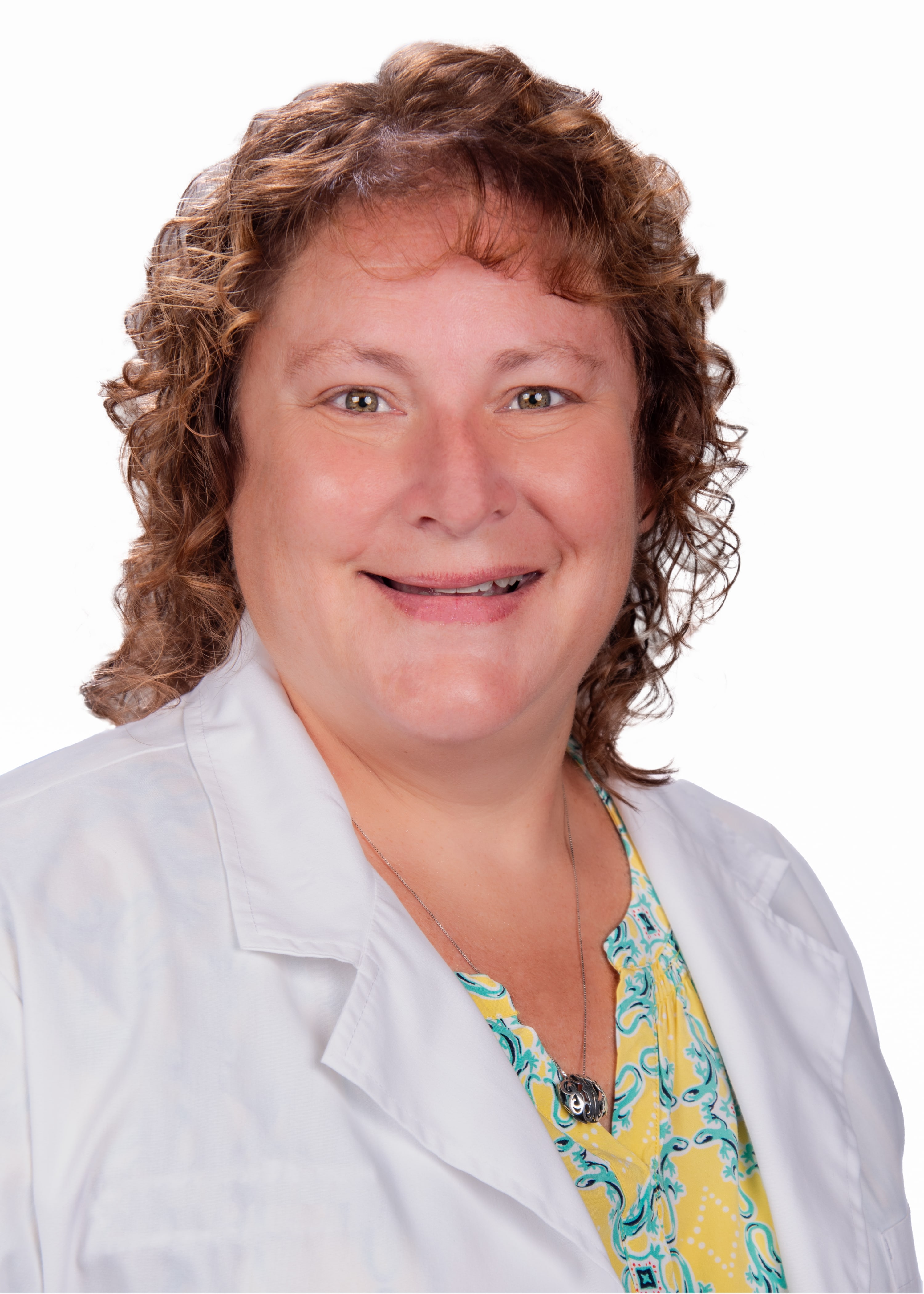
Jennifer Kendrick has worked at ECU Health since 2018, but she’s been a nurse since graduating from the University of Western Ontario in 1994. She is currently a perinatal outreach coordinator, and she provides obstetrical education to clinicians and providers to improve the health and well-being of maternal and childbearing families in eastern North Carolina. While working in this field wasn’t necessarily something Kendrick knew she wanted to do from the beginning, she spent a rotation during college in labor and delivery and found her passion there.
After working as a bedside nurse for more than 20 years, Kendrick found herself with the opportunity to educate new and current nurses and other providers. “I started with teaching CPR in the early 2000s,” Kendrick said. “Now I educate providers in obstetrics, and I take clinical students from ECU to the OB floor at Nash.” Kendrick said she’s been asked by the American Academy of Family Physicians international forum to teach an Advanced Life Support in Obstetrics course in Palestine in November of this year. She’s also pursuing her DNP, with plans to graduate next year.
Kendrick said it’s an honor for her hard work to be recognized as a Great 100 Nurses honoree. “It’s humbling to be recognized for the passion I have for what I do and the great need for it,” Kendrick admitted. “We work in some of the poorest, toughest, most socioeconomically disadvantaged communities.” She pointed out that she’s not the only one doing this valuable work, and that having so many nurses from ECU Health to be recognized is important. “It speaks to the level of expertise we have in our systems, and the fact that we’re willing to see it and recognize each other,” Kendrick said. “There is phenomenal work going on in eastern North Carolina.”
Kimberly Lupton
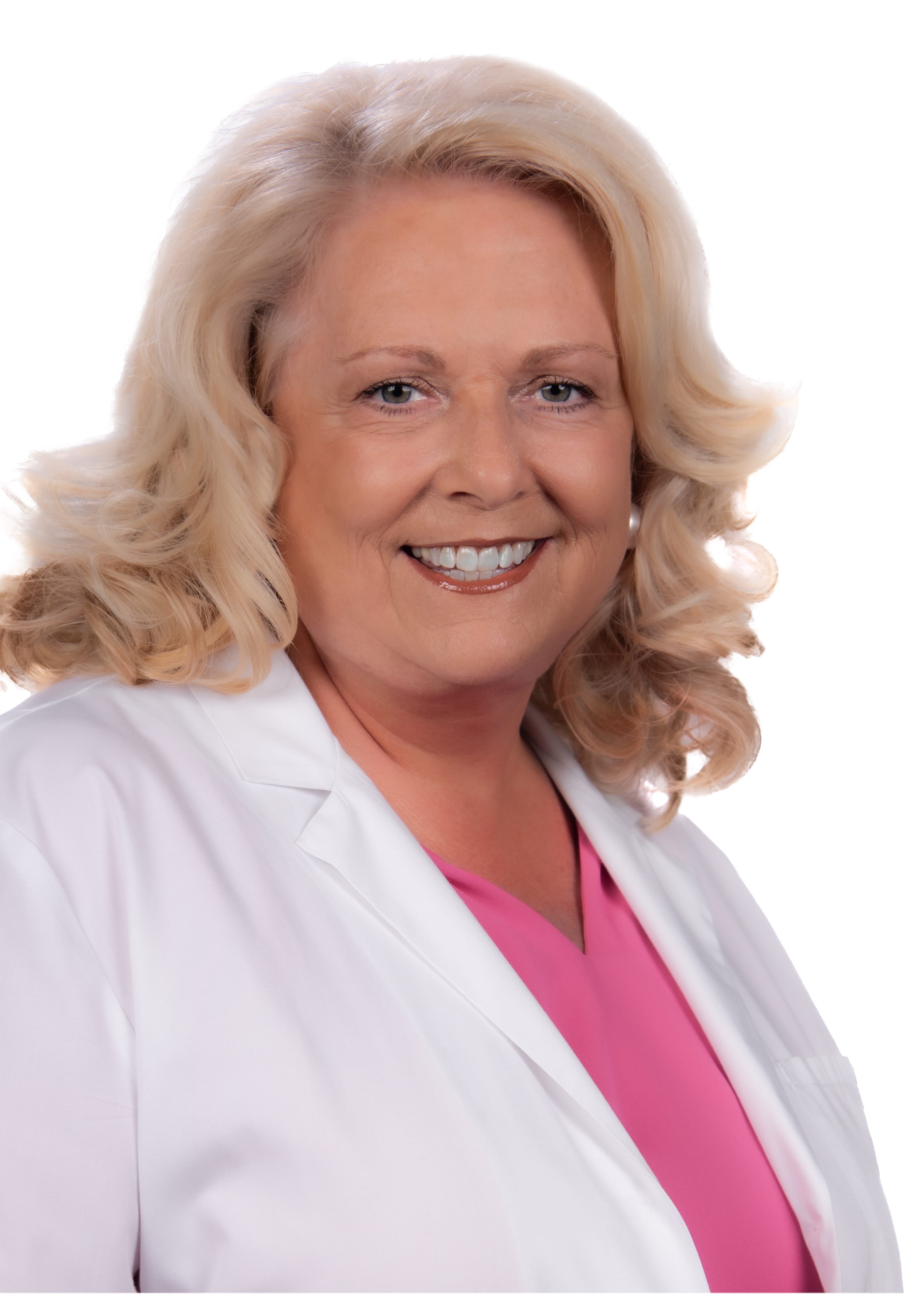
Kimberly Lupton has been a nurse for 37 years and is currently a CSO assistant nurse manager for nursing assistants at ECU Health Medical Center. That experience, Lupton said, is what might have inspired her manager to nominate her as a Great 100 Nurse of North Carolina. “My manager said she appreciated my extensive nursing career and had not only heard, but has seen first-hand the lives that had been touched,” Lupton said. “I have never been someone who likes to be in the spotlight. As a nurse, you often make light of how you support and inspire others, and you take a back seat.”
Although she began her health care journey thinking she’d pursue dentistry, Lupton said her mother was the one who knew all along she’d make a great nurse. “When I was in high school, my mom often encouraged me to become a nurse and said she believed I’d never regret it. She was 100% correct. I started in pre-dentistry, but it just wasn’t my cup of tea,” Lupton said. “Being a nurse is not a job; it’s a calling. And I love it.”
Now Lupton takes the knowledge she’s gained during her career and is sharing it with new nursing assistants and nurses. “I enjoy mentoring,” Lupton shares. “That’s why I’m an adjunct instructor at Pitt Community College. I love seeing students grow, better themselves and achieve their goals.”
Lupton said that when she received the Great 100 Nurses letter, she opened it in private. “I really thought it was a letter congratulating me for being nominated,” she laughed. “It was such a surprise, I wondered if the letter was sent by mistake. I was apprehensive about sharing it with anyone until I was sure it was authentic.” Being an honoree, Lupton said, only shows the quality of nursing care at ECU Health. “There are so many nurses here who are deserving,” she said. “Some of the finest nurses in the nation work here. It’s an example of what a great organization we have, the care we give and the experience you’ll receive as a patient.”
Donnie Johnson
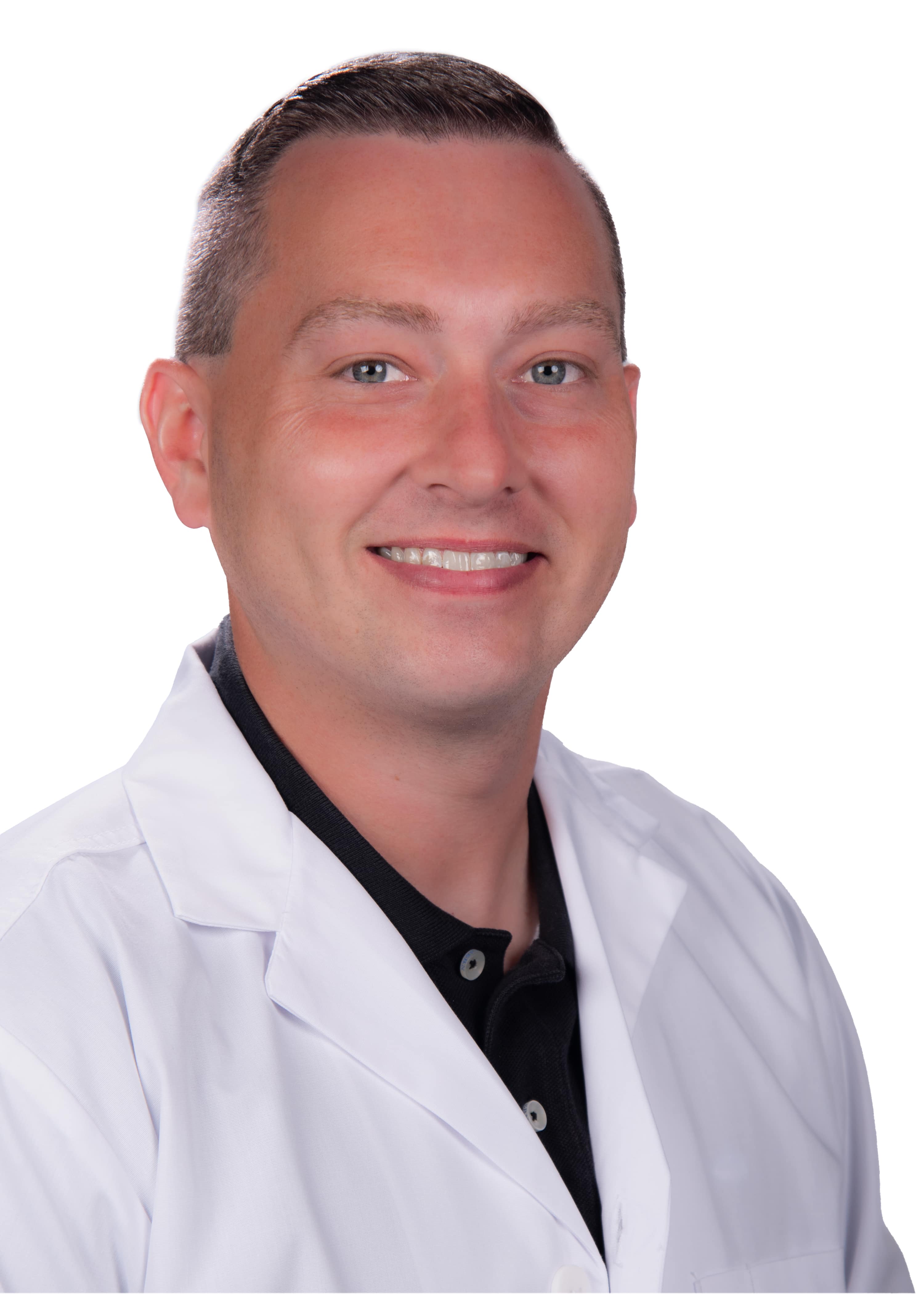
Donnie Johnson’s nursing career began in the ECU Health Medical Center’s emergency department (ED) more than 14 years ago. His personal and family experience working as a volunteer firefighter and a paramedic drew him to work in the ED. Pursuing a nursing degree seemed a logical next step, and now Johnson is wrapping up his PhD with Liberty University. “I loved the fast pace and critical thinking of the ED,” Johnson said. “The lifesaving interventions make an impact.”
Since 2017, Johnson has worked as a professional development specialist for emergency services, which allows him to take his clinical experiences and share them with new cohorts of nursing students and nurses. “I enjoy education and nursing, so this allows me to pair both while impacting the unit, organization, system and the nursing profession as a whole,” Johnson explained. “Education is the great equalizer. I might not be at the bedside but I’m helping develop, grow, prepare and nurture nurses no matter where they go.”
That investment, Johnson said, is a way of giving back to the community in which he lives. “I have an interest in making sure our students are prepared, because one day my family or I will be a patient. I want to ensure all patients receive good care.” That carries over to Johnson’s work in education outside of ECU Health, where he will teach part time with ECU’s College of Nursing this fall.
Johnson said he was surprised when he learned he was being nominated by his manager and colleagues for the Great 100 Nurses of North Carolina. “ECU Health is consistently promoting and advancing the profession of nursing,” Johnson said, something he strongly believes in. “I hope my manager, director and administrator saw in me a commitment to the organization and the profession, to helping our nurses grow and develop a passion for nursing,” Johnson said. “I try to be a role model within our department that others can come to for help.”
That commitment is seen across the organization, Johnson said. “By having so many nurses at ECU Health recognized, it shows we are actively living our vision and mission every day. We are holding ourselves to a higher standard.”
Lindsay Caddell
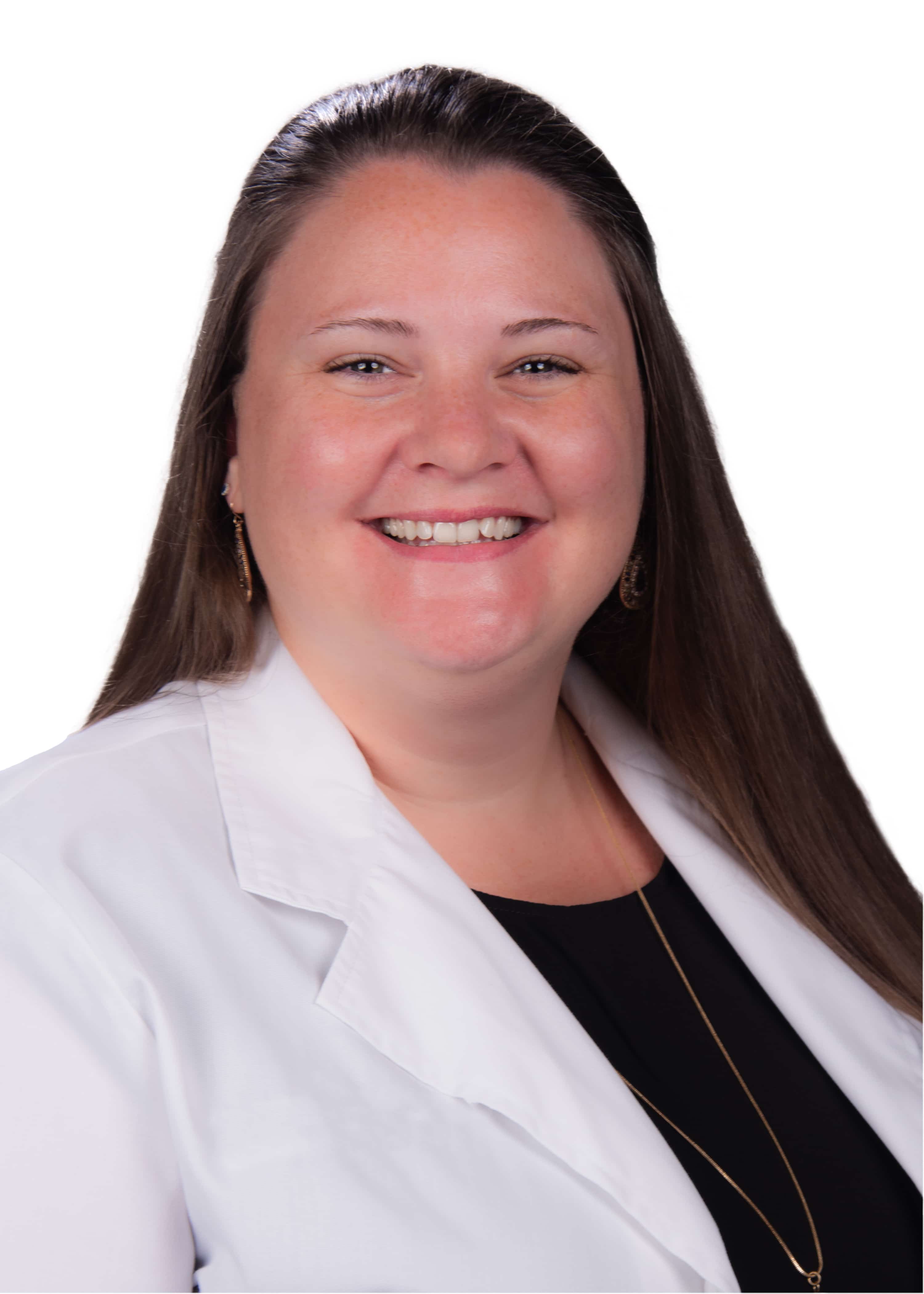
Lindsay Caddell, staff nurse in the NICU at ECU Health Medical Center, graduated from East Carolina University with her BSN and started working at ECU Health in 2015.
She serves as a bedside nurse, but she also plays other roles, including precepting new nurses, acting as a charge nurse, chairing the bereavement team in the NICU and teaching in the STABLE program, which represents the six assessment and care modules used in the program: sugar/safe care, temperature, airway, blood pressure, lab work and emotional support.
A visit to see her cousin in the NICU when Caddell was in middle school sparked her interest in nursing. “I did some school projects after that, then went to nursing school and knew I wanted to work in the NICU.”
Caddell said now she can’t imagine working anywhere else or in any other setting. “I built a family here,” she explained. “I have close friends and feel comfortable and confident. I have other people’s backs, and they have mine. Our team is great.” Part of her success comes from the mentorship she received. “I wouldn’t be here today without the people who precepted me and mentored me.” Caddell said that level of support and skill makes it unsurprising that 13 ECU Health nurses have been recognized by The Great 100 Nurses. “It shows we have a great team, especially in the NICU. It speaks to the focus each of us has on passing along the knowledge that was given to us. It’s an environment of education and mentorship.”
Caddell said she didn’t know she’d been nominated for The Great 100 Nurses, so receiving the award letter was a true surprise. “I was honored,” she said. “I know other nurses in the NICU and the hospital who have been honorees, and I respect them. Knowing I was chosen to be alongside nurses of that caliber was exciting.” Caddell hopes that being honored as a younger nurse would inspire new nurses as they began their careers. “It’s humbling to represent the NICU, but also to show younger nurses that there are things you can achieve as a younger nurse.”
Jenny Wester
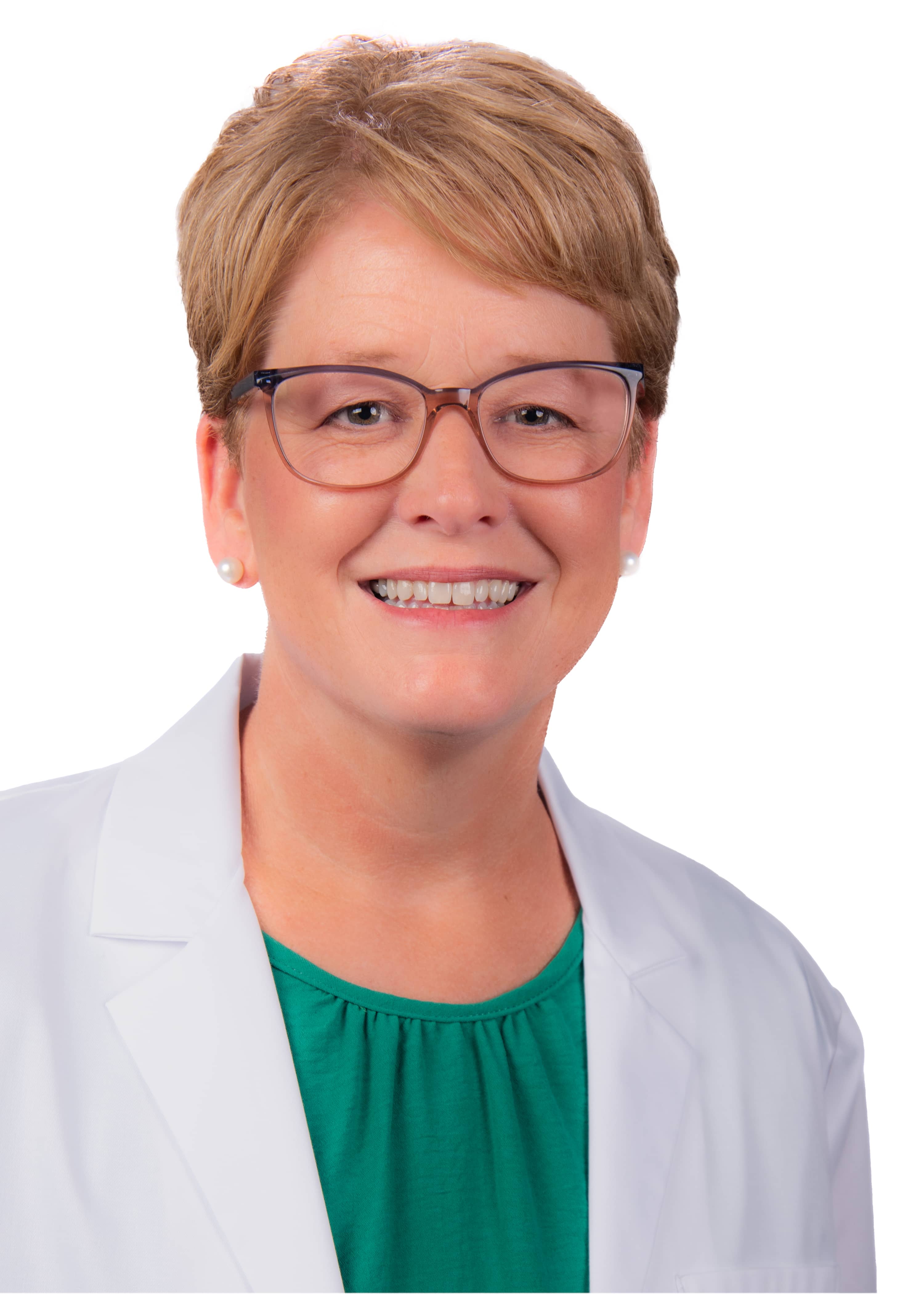
Jenny Wester named several reasons for becoming a nurse, but a four-week stay in the hospital after breaking her femur when she was 12 made her confident nursing was the right career path. “I was in traction, and it’s hard to be 12 and not able to move for four weeks,” Jenny said. “But my nurses treated me wonderfully and tried to make every day a good one. I thought, that’s the kind of nurse I want to be.” One nurse in particular, Mary Beth, made a strong impression, and the two stayed in touch well beyond Wester’s hospital stay. “I kept up with her, and when I graduated from nursing school, she sent me a pair of gold scissors. That meant a lot.”
Wester has worked at ECU Health Medical Center since 1998 in pediatrics, and she said she’s never thought about going anywhere else. “I love this environment and my peds family,” she explained. “ECU Health has been really good to me.” Her work at ECU Health offered flexibility and opportunities to grow. “I had a good work/life balance when my kids were younger and I could adjust my schedule,” Wester shared. “I was able to attend professional conferences, and they paid for me to go back to school to get my BSN.”
Wester attributed her success in part to strong mentor relationships during her career. “I’ve had wonderful mentors, and I wouldn’t be here without them. Now I take ownership of helping our new nurses, and I’m often called ‘Mama Jenny’ on the unit.” Wester said above all, she’s proud of her profession. “I’m so blessed to take care of my patients, and I’m proud to be a nurse. I want for all of our nurses to take pride in who they are and what we can do as a group.”
When she found out she was named a Great 100 Nurse, Wester was humbled and surprised. “I thought, they must not have had as good of an applicant pool this year if I won,” she laughed. Wester said she doesn’t think she does anything that her colleagues don’t also do. “I was taught to work hard,” Wester said. “In 25 years, there’s not a thing I’ve done around here I expected recognition for.”
Rhiannon Stallings
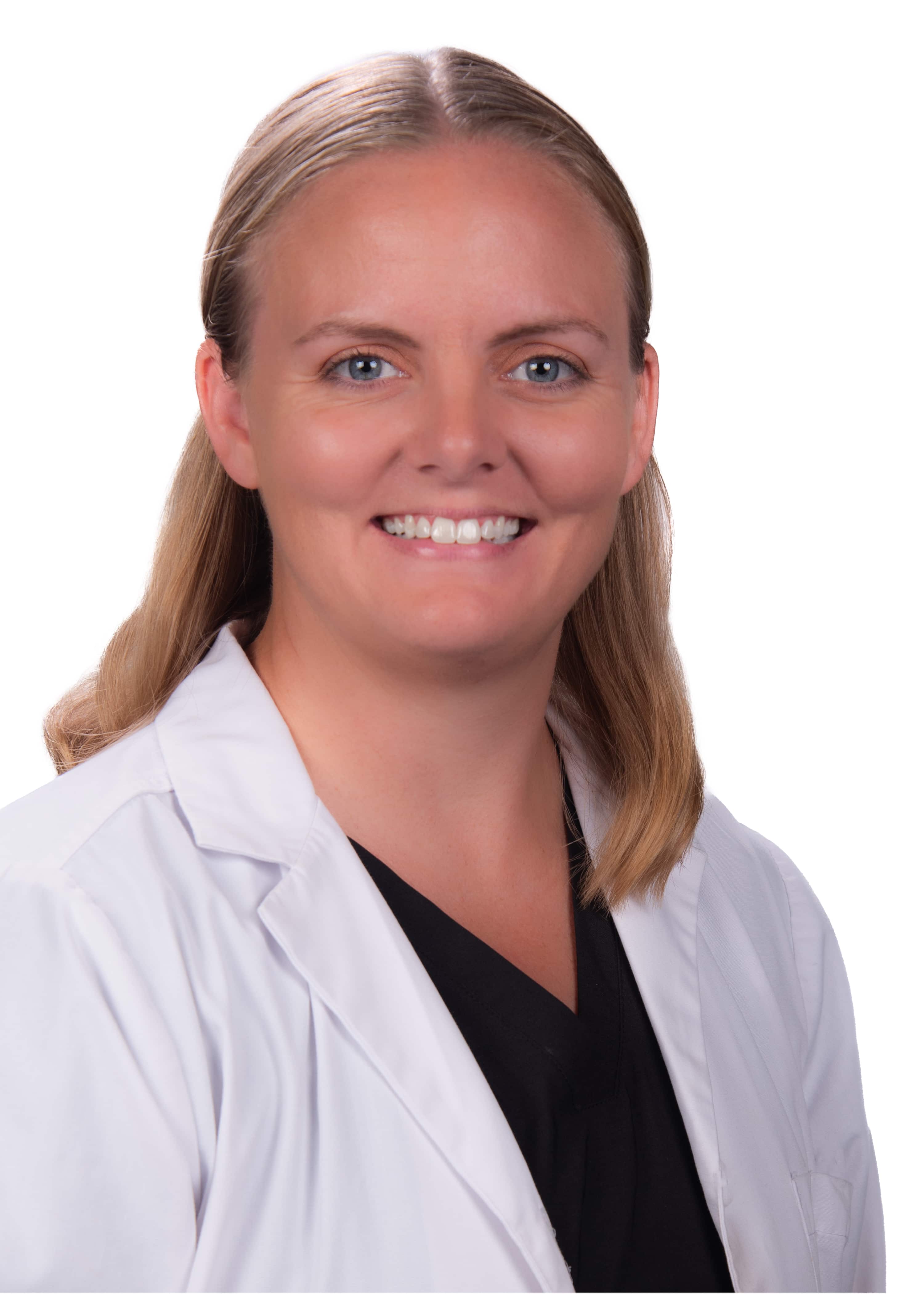
Rhiannon Stallings, a perinatal nurse navigator at ECU Health Medical Center, said that for as long as she could remember, she wanted to be a nurse. “As I went through nursing school, I decided I wanted to work in obstetrics, and here I am.” After working for a few years at a smaller hospital immediately after graduation, Stallings joined ECU Health and has been here for the last 10 years. Stallings began as a bedside nurse but transitioned three years ago into the perinatal nurse navigator role, which, she said, allows her to impact many patients every day. “I work with antepartum patients, some of whom are admitted for long stays. I go on rounds with OB providers and ensure patients have the consults and education they need. I coordinate cardiac OB patients, who sometimes need special delivery plans to account for their cardiac diagnoses. I get to know the patients ahead of time, but I also go out into the community to meet regional hospitals’ patients’ needs.”
When she learned she’d been named a Great 100 Nurse of North Carolina, Stallings said, “I cried. It was an honor just to be nominated. To have my work recognized – it made me know I am doing what I’m supposed to be doing. I really enjoy my work and the patients I touch.”
However, Stallings insisted she doesn’t do more than any other nurse at ECU Health. “We have so many nurses who provide great care and want the best outcomes for their patients,” Stallings said. “We love what we do, and we help our patients get through those tough times.” That teamwork, Stallings said, is key to quality care. “I couldn’t do what I do without the interdisciplinary team that’s around me and the administration that supports me. I’m truly thankful for the nurses and providers who support and believe in me.”
As the fall season begins and young students head back to school, safety is top of mind for the Injury Prevention and School Health programs at ECU Health Medical Center.
Laurie Reed, nurse manager for the School Health Program, said starting the school year out on the right foot begins with staying healthy. Reed said it is important for parents to make sure children have an annual physical exam with a primary care provider to make sure they are healthy and have what they need to be successful in the classroom.
For students entering public schools for the first time, a health assessment is required by a physician within 12 months of starting school. Reed said providers need to fill out a form and have it submitted to the school.

“If their child has had a physical in the last year, it may just be a matter of taking that form to the provider’s office to have them complete it,” Reed said. “If they haven’t had that physical in the last year, it’s really important that they go ahead and reach out to their child’s doctor to get that appointment scheduled.”
Additionally, she noted the importance of students being up-to-date on their vaccines to help keep them in school. Reed said there are specific vaccines and boosters for children as they reach kindergarten, 7th grade and 12th grade, all of which should be part of their annual physicals.
Reed said it’s important to understand that these vaccines and boosters are all part of keeping young students healthy and in the classroom.
“These are actually diseases that are still out there and that children actually could get if they don’t receive vaccines,” Reed said. “Of course, in a school environment where children are in close conditions, it’s a public health concern if we would have a student that would come down with one of these illnesses. If other students are not vaccinated, then, of course, then it could it could spread within a school setting. Generally, just for their overall good health, it’s just very important that students are receiving their vaccines on a routine basis.”
Reed encouraged families to contact their local school nurse or the Maynard Children’s Hospital for more information.
School bus safety
Another important aspect of back to school safety focuses on our roads.
Ellen Walston, Injury Prevention Program coordinator at ECU Health Medical Center, urged motorists to use caution when driving near school buses and in school zones.
Walston said that distracted driving is a problem and to combat that challenge, some modifications have been made in school zones in the area. These updates include mounted speed boards and flashing beacons at crosswalks to alert drivers to pedestrians.
“It is really important that we emphasize distractions within school zones and any time that you’re driving,” Walston said. “Students are also distracted when they’re walking to and from school. So any education we can provide around that is important and that applies to the driver as well as a pedestrian.”
Richard Hutchinson, director of transportation for Pitt County Schools, said it’s crucial for drivers to follow the law and stop when a bus is at a pick up or drop off spot to keep children safe.
Hutchinson shared that over 3,000 stopped school buses are passed each day in North Carolina and this creates a risk for children. He asked that drivers follow the law, stop and wait for the school bus to continue.
“As soon as you see the amber lights come on, it would be good to slow down and be prepared to stop,” Hutchinson said. “If the busses come to a stop, you should come to a stop, even if that stop arm has not come out yet. That’s just going to help keep everyone safe.”
Resources
Lifelong dreams came one step closer to reality for the newest class of students in the Brody School of Medicine at East Carolina University as they were officially welcomed during the school’s annual White Coat Ceremony on Friday.
The 90 members of the Class of 2027 — all North Carolina residents — were helped into their white coats during the traditional celebration at the Health Sciences Student Center and regaled with messages and well wishes from Brody faculty and leadership.
Kristel McLawhorn, transplant nephrologist and 2005 Brody alumna, gave the keynote address, urging the Class of 2027 to stop, listen and absorb the knowledge and experiences they gain in the coming years.
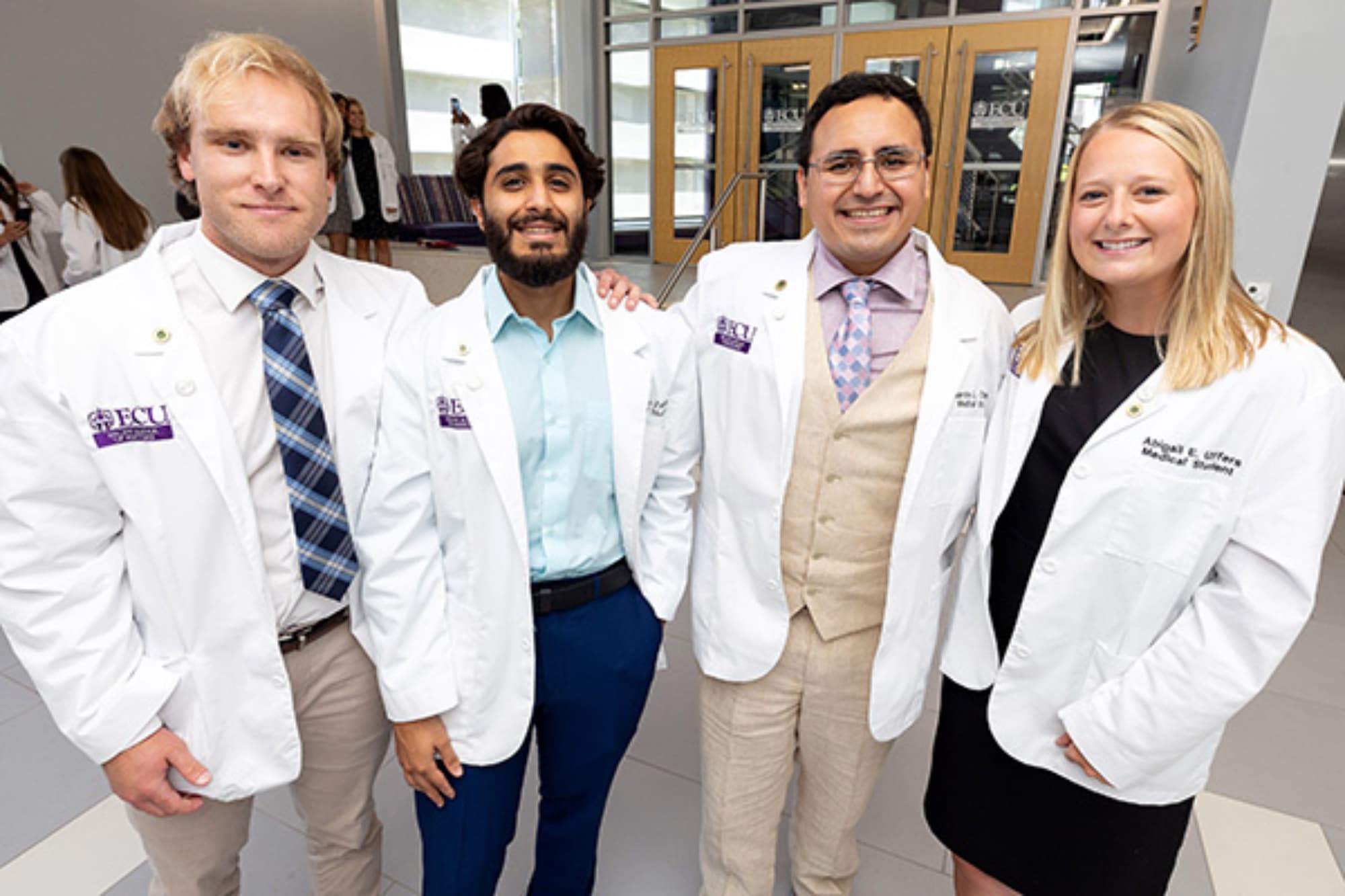
“You have earned this opportunity,” McLawhorn said. “My charge to you is this: Be prepared for anything: to be challenged, to be afraid, to be humbled, to serve and to change. Know where your support is and know what is mission-critical in the big picture. Have the grace and wisdom to know when you don’t know, and the drive to do something about it.”
McLawhorn told the students that during her intern year at Brown University after she graduated from Brody, she got an early-morning phone call that her father was gravely ill. Knowing what she did about medicine, she jumped in her car and drove 700 miles south, knowing the odds were stacked against her father. But with her medical knowledge, she held out hope.
“My dad survived that event,” she shared, “and is actually sitting here with us today. Can you stand up?”
The crowd cheered and applauded as McLawhorn’s father, John Jernigan, stood and waved from the first row.
“I was clinically sound before; I left ECU with a strong base of medical knowledge, and I was working hard to hone and craft my skill at Brown,” she said. “But his illness taught me a great deal about life and even more about doctoring that no institution can teach you,” including empathy, ability to listen, sharpened knowledge and agile teamwork.
“My dad taught me that every day is a good day, and some days are better days,” McLawhorn said. “Today is one of the better days. It’s a marker in your life and education, a point at which you are living the consequences of your previous choices. You’ve worked hard for the opportunity.”
The Class of 2027, the largest class in Brody history, hails from 36 North Carolina counties and 26 undergraduate institutions; 61% of the class is female, 16% are first-generation college students, and 21% are from minority groups — Black, Native American and Hispanic or Latino — that the Association of American Medical Colleges considers “underrepresented in medicine.” Four are veterans, and four were collegiate student athletes. The class speaks a total of 23 languages.
Jason Higginson, executive dean of Brody, formally welcomed the class and voiced confidence in the students’ future contributions to medicine.
“Today we welcome you to the study and art of medicine, a profession symbolized by the white coat,” he said. “We know you will do great things.”
Onolunosen Abhulimen
Onolunosen Abhulimen — her family and friends call her Ono — doesn’t have time to wait for things to happen.
The Brinkley-Lane and early assurance student, the daughter of Nigerian immigrants, graduated from high school in Winston-Salem with an associate’s degree under her belt — the first in her school to do so. Since she pioneered the path, other family members have followed in her wake, including her two younger brothers, who are also Brody Early Assurance students — one a sophomore and the other a junior. Her youngest brother will start fourth grade in the fall of 2023.
Abhulimen played basketball on her school team and a travel team. She did the same with track, where she ran the short distances. That wasn’t enough, though. She picked up the shot put and then the discus, which she fell in love with and would have broken the school record had the COVID-19 pandemic not shut sports down.
She excelled in the classroom as well. Having to navigate traditional high school classes, driving to the community college, and juggling sports and clubs taught her life lessons that would set her up for success in college: discipline, organization and commitment.
“It was hard for me to seek help, to ask for advice. There were some barriers that had to overcome,” Abhulimen said. “I definitely had to learn time management.”
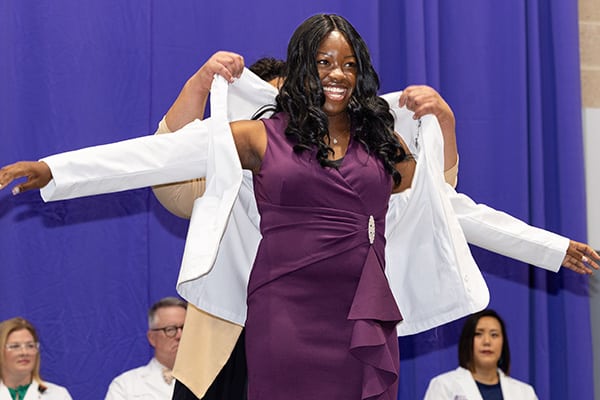
During high school she knew she wanted to pursue some kind of medical career. She attended a medical student symposium at Wake Forest University and heard a presenter talk about health care disparities, which was a new concept for her. Investigation and research solidified her plans — she wanted to be a doctor, enough so that during her undergrad years at ECU she founded a Students for Equitable Health Outcomes organization.
“I want a leadership role, to use my experience in helping those in rural communities get better health outcomes,” Abhulimen said.
Because she graduated high school with a pocketful of college credits, she was able to graduate from ECU summa cum laude in December 2022 with a degree in biology with honors in five semesters. She’ll start her first year of medical school at 21— most of her peers who will be a few years older — and after a semester’s break that she used to get her head in the game.
“I wanted to make sure I was really prepared and I was familiar with people that I could seek help and advice from. Brody is a very welcoming environment where it’s easy to ask for help or advice from other students,” Abhulimen said.
When she donned the white coat for the first time it was with pride and a sense of accomplishment. And her family beamed from the audience — her parents, all three brothers and a slew of aunts, uncles and cousins.
“It’s a representation of everything I’ve had to do to get to this point, even before high school. All the sacrifices that I made, being able to really study for those hard classes, some of the all-nighters I had to pull — I’m finally here,” Abhulimen said. “It’s like a breath of fresh air. I’m starting a new journey.”
Jose Robles Arvizu
Learning to navigate opportunity has given one first-year medical student a layered perspective from which to change the lives of his future patients.
Jose Robles Arvizu was born in Rio Verde San Luis Potosi, Mexico, and moved to Hendersonville when he was 2 years old. Over the years, he observed the challenges facing those around him and started formulating plans to make improvements in his community.
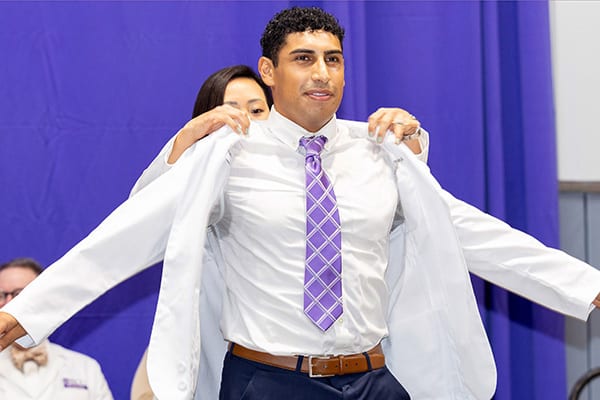
“Growing up, I saw how people in my marginalized communities, particularly farm workers and migrant farm workers, were often spectators in their health needs as a result of their lifestyle and barriers to accessing health care,” Robles Arvizu said. “I knew there had to be something I could do to bridge this gap and empower these communities to become stake holders in their health and make it a priority. This fueled my desire to become a physician with the goal of returning to western North Carolina to make a positive impact in the communities in the place I call home.”
He later attended UNC–Chapel Hill as a first-generation undergraduate, then went to Wake Forest to get his master’s in biomedical sciences, research track.
“One of the things that I am most excited about is being part of the incoming Brody class is becoming a member of a larger family that has a common goal of improving the health of communities across North Carolina,” he said. “Even within the last few days getting to know more people, it is more evident that we all have a ton in common, and I’m excited to embark on this journey with the rest of my classmates.”
Robles Arvizu has come to view education as a lifelong opportunity that can benefit those around him, making health care — and education — more accessible.
“Being a first-generation college and medical student brings both challenges and opportunities,” he said. “I would aim to use my experience as a first-generation student to advocate for others in similar situations. Understanding the unique challenges faced by first-generation students, I could contribute to making the education system more inclusive and accessible.”
Because of his motivation and perseverance, Robles Arvizu was named a Gates Millennium Scholar. The program, funded by the Bill and Melinda Gates Foundation, provides a full scholarship to any undergraduate institution to students from underrepresented groups. The scholarship also covers master’s and doctoral studies in the disciplines of computer science, education, engineering, library science, mathematics public health, and the sciences, where these groups are severely underrepresented.
“Being named a recipient of the Gates Millennium Scholarship one of the largest blessings that allowed me to peruse my dream of becoming a physician without the immense financial barrier that many first-gen students encounter,” he said.
As he begins medical school, Robles Arvizu plans to use his life experiences to be empathetic to his future patients’ barriers and circumstances.
“Having faced my own challenges and adversities, I would use these experiences to relate to my patients and their struggles,” he said. “This empathy would help me provide better care and make a positive impact on my patients’ lives.”
Grant Irons
The Class of 2027 includes a student whose family has already built a legacy in eastern North Carolina health care.
Grant Irons is the great-grandson of regional health care pioneers Fred and Malene Irons and the grandson of Tom Irons, professor emeritus of pediatrics at Brody, medical director of Access East and the N.C. Agromedicine Institute, and interim medical director of physician assistant studies.
Grant Irons was born and raised in Greenville and attended UNC–Chapel Hill, where he earned a degree in biology with minors in chemistry and health and society.
“It is truly humbling to carry on my family’s legacy here in eastern North Carolina,” he said. “I was lucky enough to spend time with my great-grandparents, Drs. Fred and Malene Irons. As I’ve grown up, I continue to learn more about their work and the impact they had on health infrastructure in eastern North Carolina. Their legacy demonstrates the impact of servant leadership. My late grandmother and grandfather, better known as Carol Irons and Dr. Tom Irons, continued this tradition of selfless service. I would not be the man I am today without their guidance as I aim to hold myself to their standard; a life lived with compassion, and humility.”
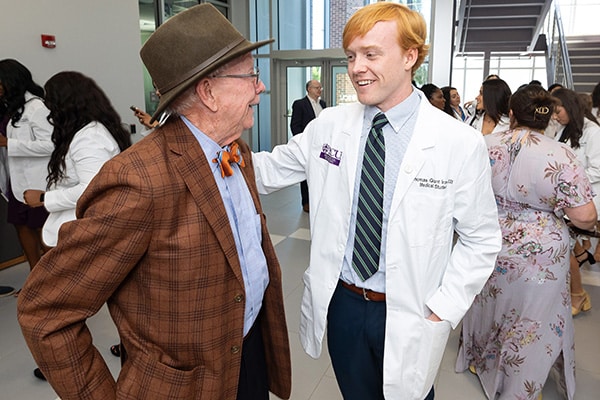
Tom Irons said he could not be prouder of his grandson’s desire to serve as a physician.
“I’m Grant’s only living grandparent, but I like to believe that today the other three are wearing smiles as big as mine,” he said. “His parents and I could not be more grateful that he has been given this opportunity, or prouder that he has chosen to come to Brody and eastern North Carolina.”
He added that he encourages his grandson and Grant’s classmates to follow their hearts.
“There is nothing easy about this journey you have undertaken, but if you put your heart into it, the rewards will be immeasurable,” he said. “Keep your head down these first two years, lean on each other, ask for help when you need it and never forget that there is no life more noble than a life of service.”
Grant is eager to live out a legacy and mirror his grandfather’s ideals and impact in medicine — but he is also ready to make his own name through the medical school that represents a life goal.
“The opportunity to be a student at Brody means the world to me; it has been a dream of mine for some time,” he said.
Grant Irons sees the bigger picture of eastern North Carolina’s health care landscape and also plans to make a difference through policy.
“Regardless of my career path, I have long been interested in health policy,” he said. “Initially, I was exposed to the importance of institutions through my family. Since I was old enough to understand, I have been fortunate enough to learn about care disparities and their impact on health outcomes.”
As a student at UNC-Chapel Hill, Irons explored the relationship between power, policy and differential health outcomes. He helped lead a chapter of PIH-Engage, a global health organization dedicated to building sustainable health infrastructure. That experience has led him to lead on a variety of fronts.
“As a physician I want to be more than a care provider; I hope to be a leader in my community,” he said. “While significant progress has and continues to be made, care expansion efforts are far from over. There are far too many people still in need.”
Lachlan Younce
Something about home — both places and people — helps to decide our futures for us.
Lachlan Younce is about as eastern North Carolina as a guy could get. His father’s family is from Belhaven and his mother’s is from Vanceboro. He played football and lacrosse at J.H. Rose high school in Greenville. He was a sailing counselor at a YMCA camp in Arapahoe, on the Neuse River, which will become important to his story.
At the camp he made friends with another counselor, a young man who ran a lot and worked out. Younce asked his friend why he was so fanatical. The answer — he was getting ready for the U.S. Naval Academy. Younce isn’t from a military family and had no idea what that meant but got very interested.
Younce applied for an appointment to the Academy and received one from the late Representative Walter B. Jones, who Younce recalls fondly. His initial attempt to get into Annapolis didn’t work out, so after graduation he headed west to Raleigh where he was part of the ROTC program at N.C. State, which he said was a blessing because he learned about military culture, which was completely foreign.
The next year his fortune changed and the Navy accepted him as a Midshipman.
Like many young men entering the academy, Younce wanted to be a pilot. He had his mind on studying political science; instead he took his first physics class, majored in chemistry and applied to the medical corps track.
He graduated in May 2023 as an ensign, and the Navy told him he could apply to any medical school in the country. He applied to three, but there was only one he really wanted to receive an acceptance letter from.
“I had the best interview experience here at Brody, I just felt like I was at home. This community raised me, built me and I think that learning medicine here is going to be extremely rewarding,” Younce said.
He’s not completely sure about what specialization he might pursue after graduation, but Brody’s mission of educating the next generations of primary care physicians impresses him.
“I think it’s great that a school so oriented towards primary care can train a physician to go into the military and provide care that service members need,” Younce said.
The winding route that brought him home means more than just place. Health care is a thread that is beginning to be woven into the fabric of his family. His mother is a registered nurse with ECU Health and a proud Pirate Nurse. His sister, Fallon Younce, has a year and a half until she graduates from the College of Nursing as a Pirate nurse herself.
“We’re going to be able to overlap these two years, and one thing I’ve learned is that nurses know what’s going on, so I’m going to use nurses’ knowledge to be successful,” Younce said.
After graduation, he’ll owe the Navy a number of years as an active-duty Navy doctor, which he is excited for, but is ultimately unsure about a career in uniform. Regardless of when is his time in uniform ends, he’s sure he’ll return to eastern North Carolina to use his Brody training to improve access to health care in underserved areas.
Family, service, and leadership were key themes of Dr. Jason Higginson’s presentation to nearly 100 first year ECU Brody School of Medicine students at the 15th Annual José G. Albernaz Golden Apple Distinguished Lecture Thursday, July 27 at the East Carolina Heart Institute at ECU.
Funded by the Albernaz family in partnership with the ECU Health Foundation, this lecture was established in 2006 with the goal of providing support for physicians to share their expertise with the medical education community. In a presentation titled “Learning to Lead: Lessons from My Military Life and Beyond,” Dr. Higginson, executive dean of Brody and chief health officer at ECU Health, outlined how his experience in the U.S. Navy, alongside the lessons he learned from his family, mentors and patients, has shaped his journey as a leader and medical doctor.
“Leadership is about finding what you do best and using that to help the people around you,” Dr. Higginson said. “You cannot achieve anything in life without the people around you. A good leader finds a way to use their knowledge and skills to solve problems for others.”
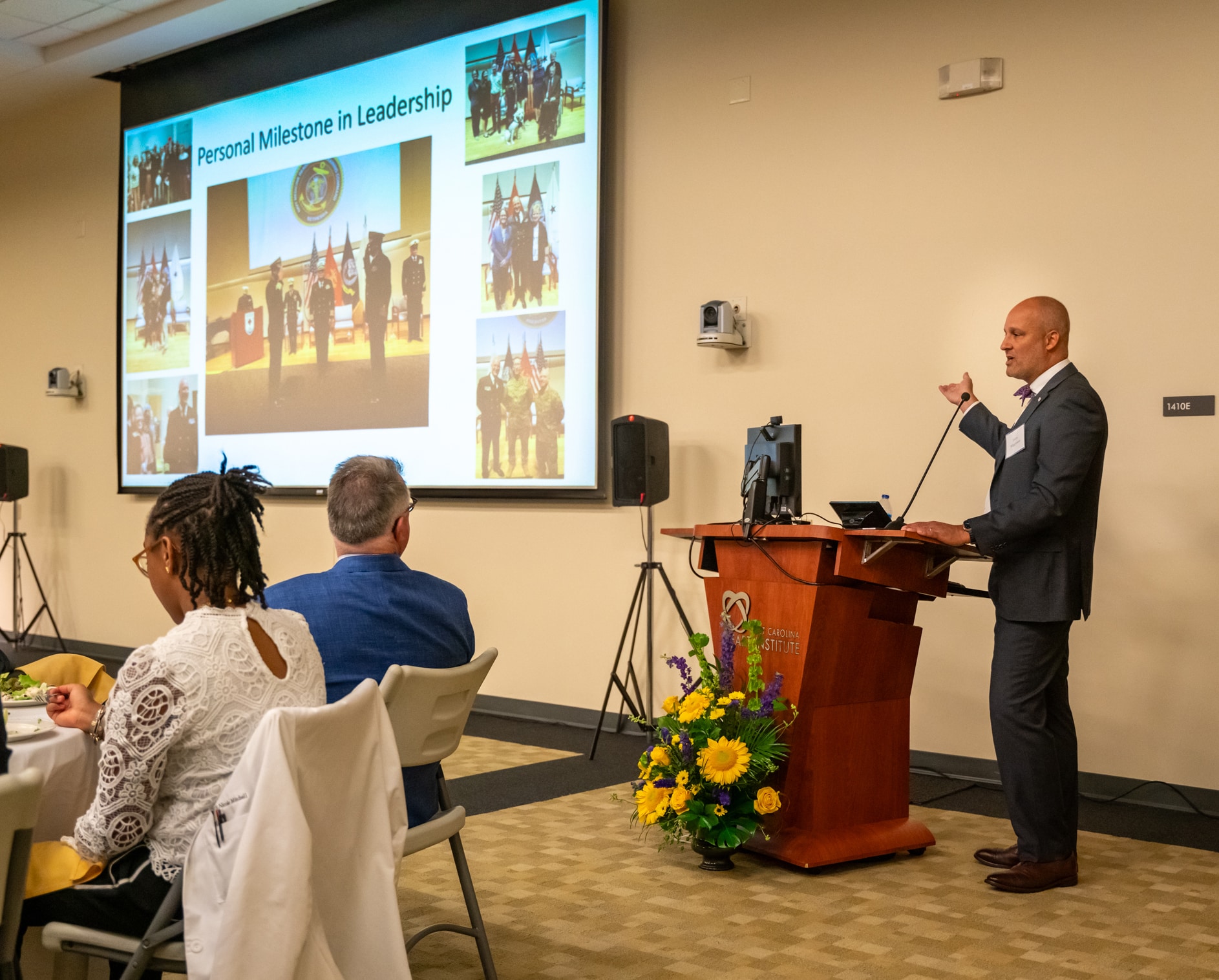
Dr. Higginson has been at Brody since 2012, following 13 years of active duty in the U.S. Navy, where he now continues to serve in the U.S. Navy Reserve holding the rank of captain. His previous roles include chair of Brody’s Department of Pediatrics, Pediatrician-in-Chief of Maynard Children’s Hospital, chief of neonatology and medical director for the Neonatal Intensive Care Unit and Newborn Medicine.
“Being a medical doctor is not about self, it’s about a calling to serve a higher need,” ECU Health CEO and Brody Dean Dr. Michael Waldrum said in his introduction at the lecture, “Dr. Higginson is a shining example of that. He is a highly engaged and highly purposeful leader who is helping us build something special at ECU Health. We’re excited that you, our students, have an opportunity to learn from him today.”
Despite his prestigious rank in both the military and the clinical field, Dr. Higginson said the lessons learned early on taught him the skills he needed to successfully lead others. He recalled joining the Navy shortly after getting his medical degree and being told to master the skills of a broom as he swept floors during his first week. That experience taught him that everything, even the simplest tasks, matters in the organization.
Those lessons, Dr. Higginson said, will serve Brody’s newest cohort of students as they embark on their own personal journeys through medical school.
“All of you are going to stand up and take the oath to be a doctor,” Dr. Higginson said. “As you are reading the words for the first time in front of those you love, I encourage you to pause and reflect on the words and what they mean to you. If you take that oath seriously, you will succeed.”
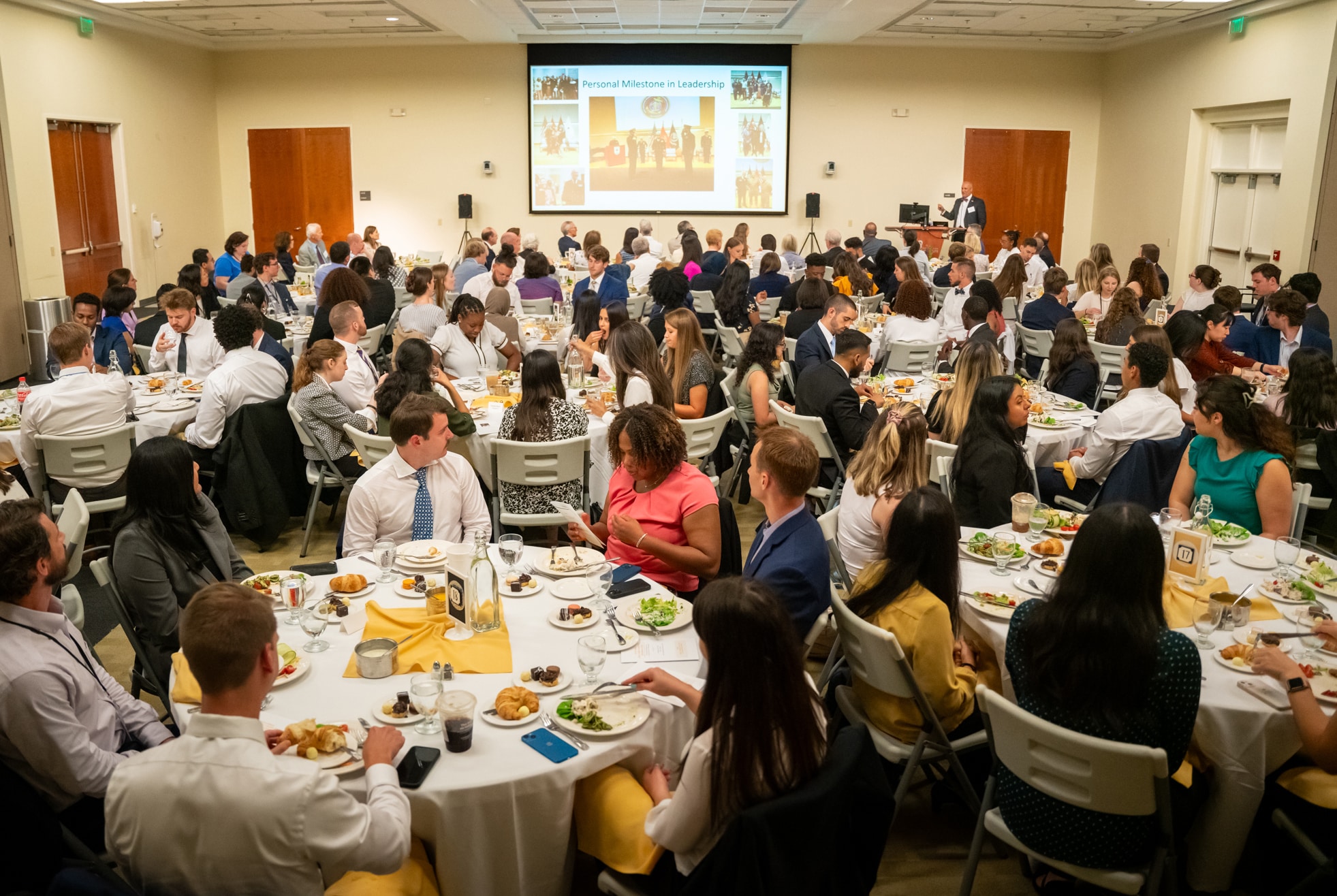
ECU Health Chief Executive Officer and Brody School of Medicine at East Carolina University Dean Dr. Michael Waldrum recently joined the Raise the Line Podcast to discuss rural health care, his personal journey in medicine and how ECU Health and Brody are advancing the shared mission of improving the health and well-being of eastern North Carolina. Hosted by Osmosis from Elsevier, Raise the Line is a podcast about strengthening global health care systems through education, training and optimizing the workforce to support health care workers.
A passion for rural communities
During his time on the podcast, Dr. Waldrum talked about his background in medicine, from his decision to pursue a medical degree, to his clinical career as an intensivist in critical care medicine, and his robust experience in health system leadership roles. He credits his time growing up in Minnesota near the Mayo Clinic for his rural health care passion.
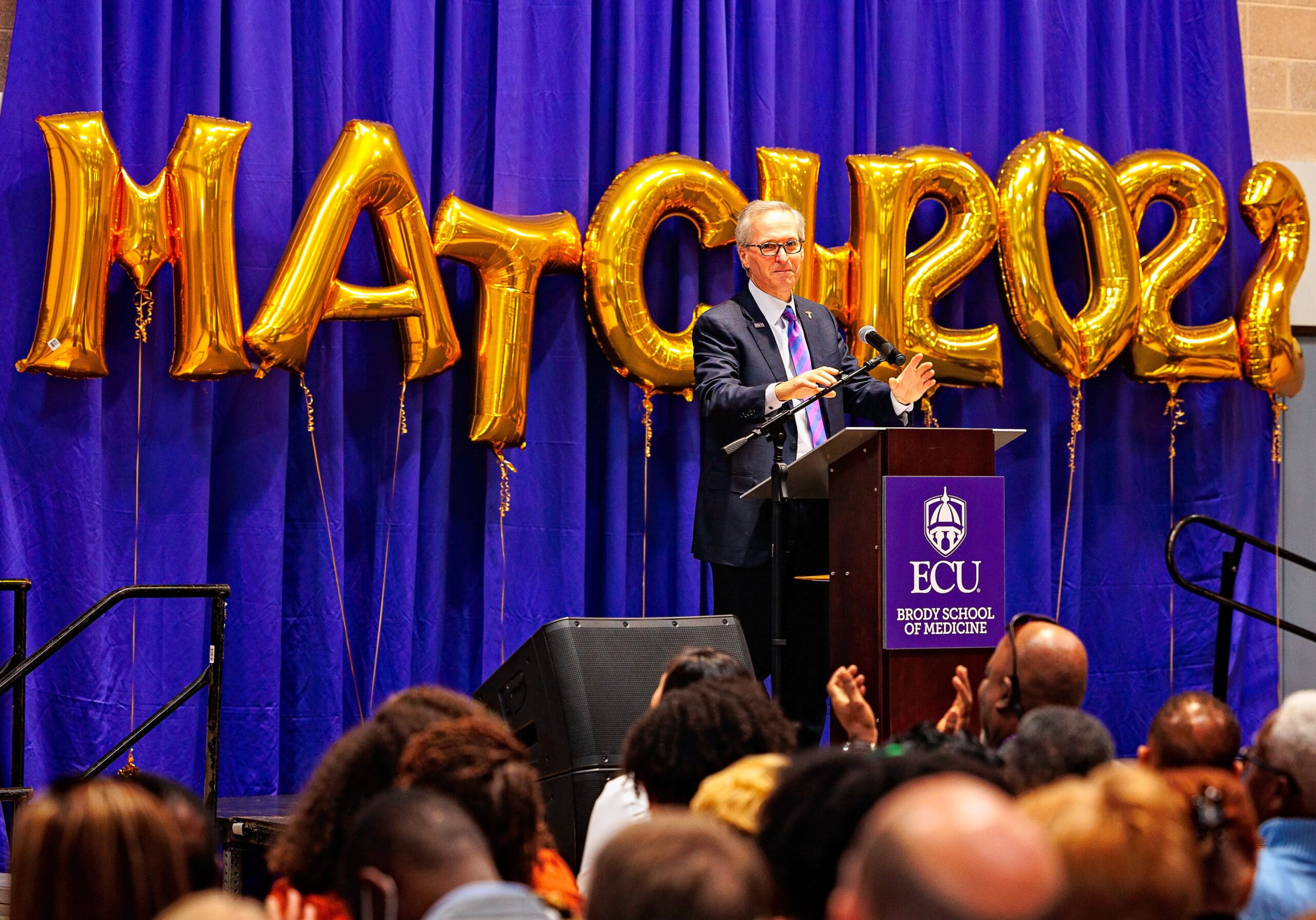
“As a young person being surrounded by physicians and other health care professionals in a rural community, it was just transformative for me. It was unbelievable,” said Dr. Waldrum. “I lived on Mayo Wood Road. I knew a number of the Mayo family, and to see what that organization did in this rural northern community in Minnesota was incredible. So, it just was something as a young person that I became very interested in because I could make a living taking care of people, which was just an unbelievable opportunity that I still have so much respect for and love for.”
Health care delivery through education
Dr. Waldrum said delivering health care in rural areas is a challenge ECU Health is uniquely positioned to solve, thanks in large part to the Brody School of Medicine, which is a leader in training primary care providers for the state. By training the next generation of providers, many of whom go on to practice in rural communities, the educational component is as important as the health care delivery component.
“I like complex problems,” Dr. Waldrum said. “I like working on these systemic complex issues and so that’s what led me to come to eastern North Carolina. We cover a geographic area the size of Maryland. People aren’t really familiar with the coastal plains of North Carolina, but it’s a huge geography and our organization serves this large geography and is really the safety net anchor institution across this region. Part of that is the academic component, which is the Brody School of Medicine, a great organization whose mission was created to primarily educate primary care physicians to take care of North Carolinians, to improve the health and well-being of this region, and to offer medical education to diverse populations.”
The Brody class of 2023 is a snapshot of Brody’s mission to serve North Carolina by increasing the number of primary care physicians who serve the state. Fifty-two% of the 2023 Brody class matched into primary care residencies — including obstetrics and gynecology — and 44% matched to residency programs in North Carolina. What’s more, Brody’s most recent class features the most medical students who will begin their residency at ECU Health Medical Center in July, which is no coincidence, according to Dr. Waldrum.
“As for ECU Health and Brody School of Medicine, we are creating the model for rural health care by creating a trusted premier education and health care organization that’s a regional-based delivery system and education system,” said Dr. Waldrum. “We have a great team of professionals doing that — multidisciplinary teams. Anybody that wants to join us — that wants to be creating a future for a great region that’s beautiful in eastern North Carolina — if you can get behind that mission, we welcome you because we are in the process of transforming health care for rural America to become that model.”
Looking for more?
Find and listen to the Raise the Line Podcast, Episode 398 – Creating a Model for Healthcare in Rural America wherever you get your podcasts.
NAGS HEAD, N.C. — The Centers for Medicare & Medicaid Services recently announced that The Outer Banks Hospital received a 5-star rating in both the Physician Communication and the Nurse Communication categories.
The Hospital Consumer Assessment of Healthcare Providers and Systems (HCAHPS) utilizes these star ratings to summarize the patient experience, which is one aspect of hospital quality. The ratings are based on surveys that patients take after receiving care.
“The 5-star rating is the highest rating and it underscores the focus that Outer Banks Health places on the patient experience,” noted Kimberly Hardman, director of experience. “We know that listening to the patient and addressing concerns with compassion and high-quality treatment leads to better outcomes.”
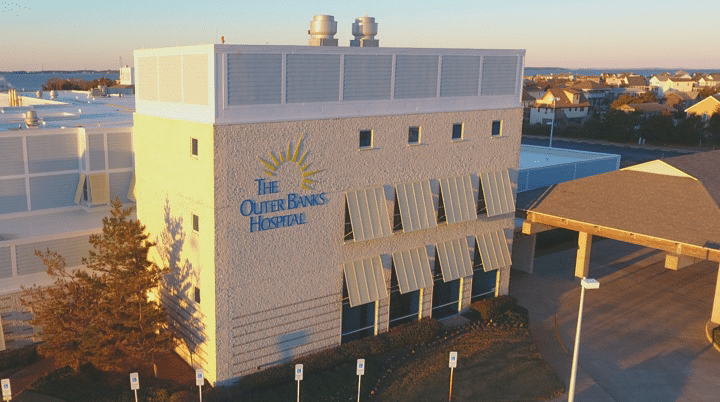
“Our physicians and nurses are among the best of the best with only five North Carolina facilities achieving the 5-star rating in both categories,” said Ronnie Sloan, FACHE, president of Outer Banks Health. “It isn’t just about our commitment to delivering quality care. It’s about delivering quality care with compassion and our nurses and providers deliver it every single day.”
